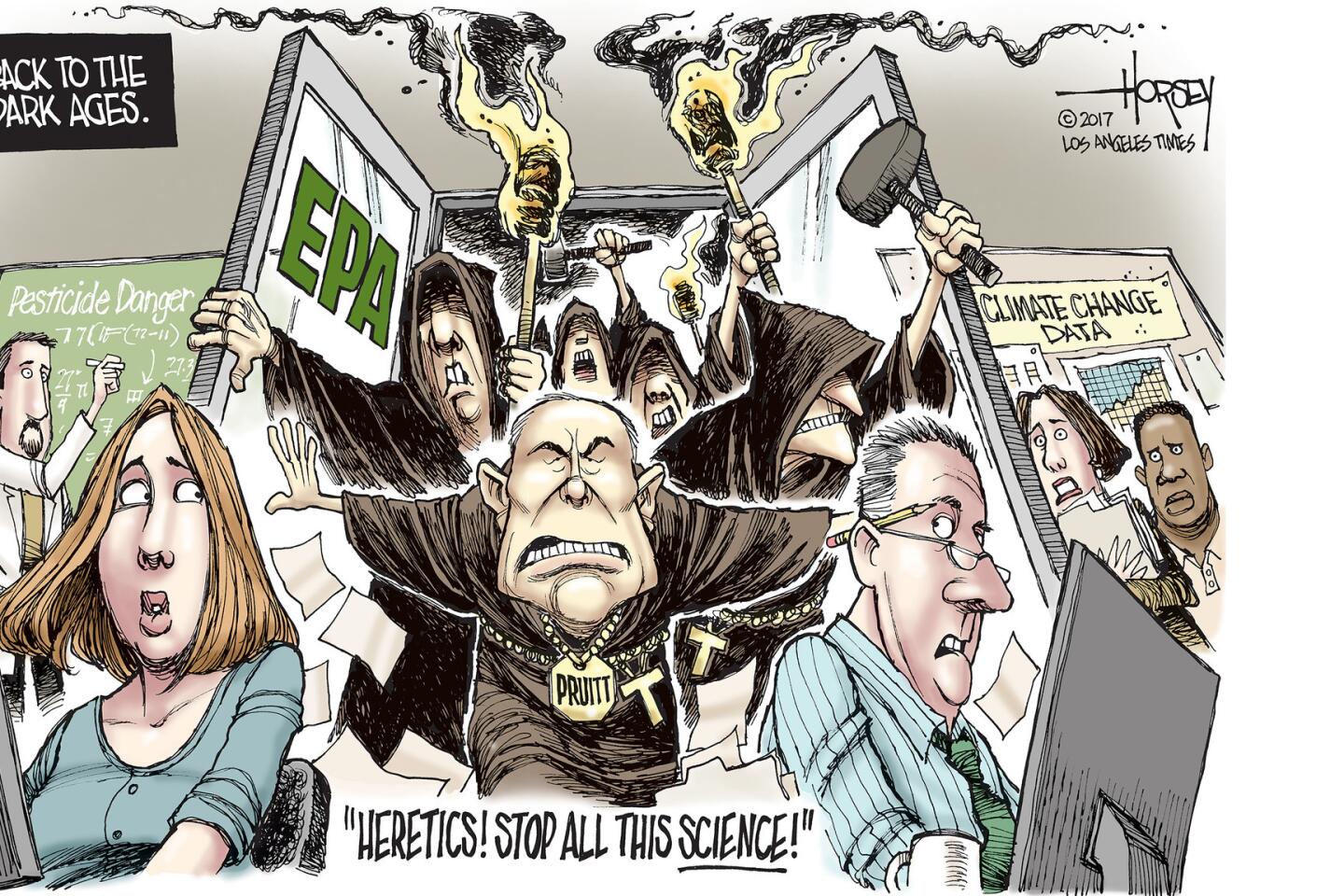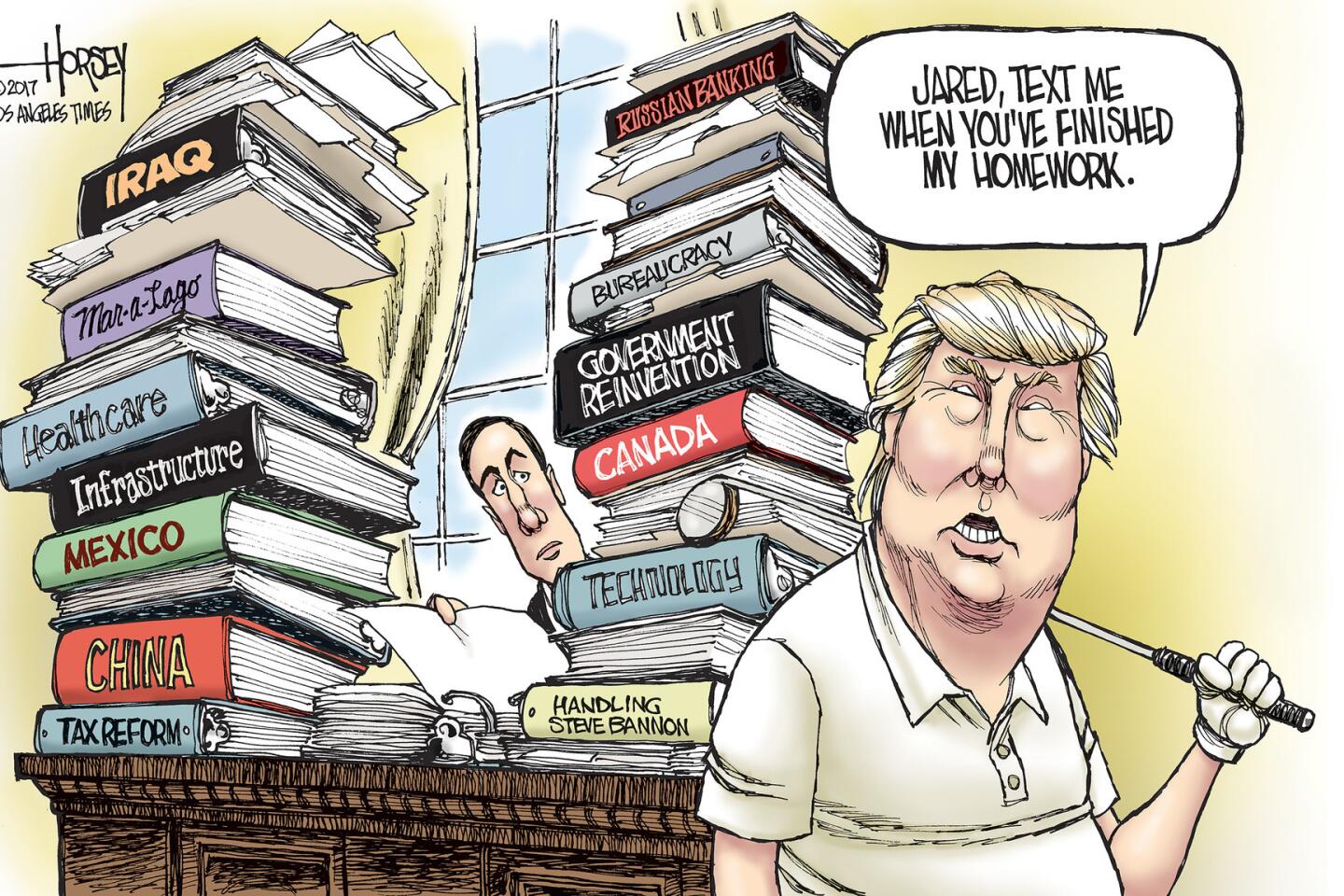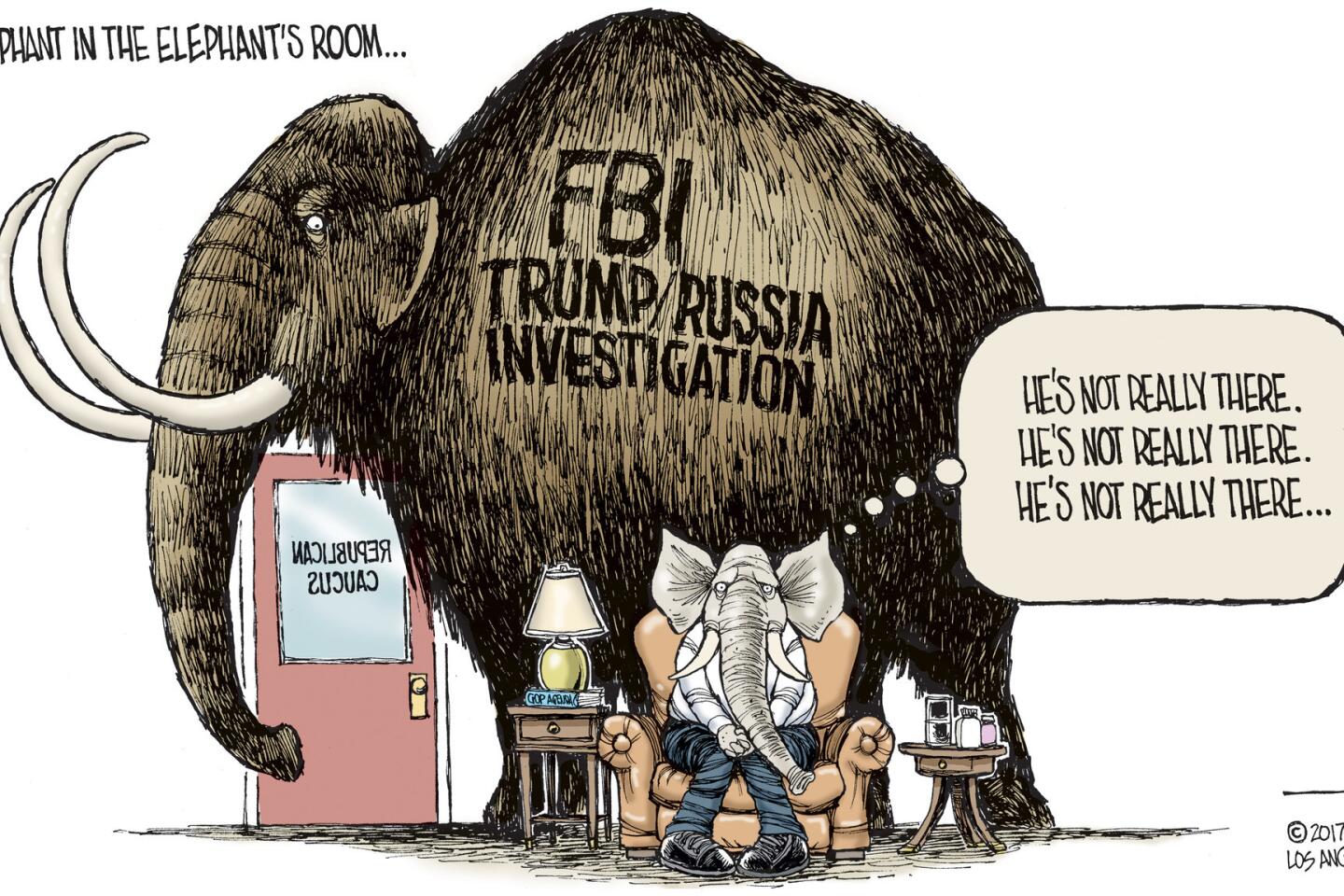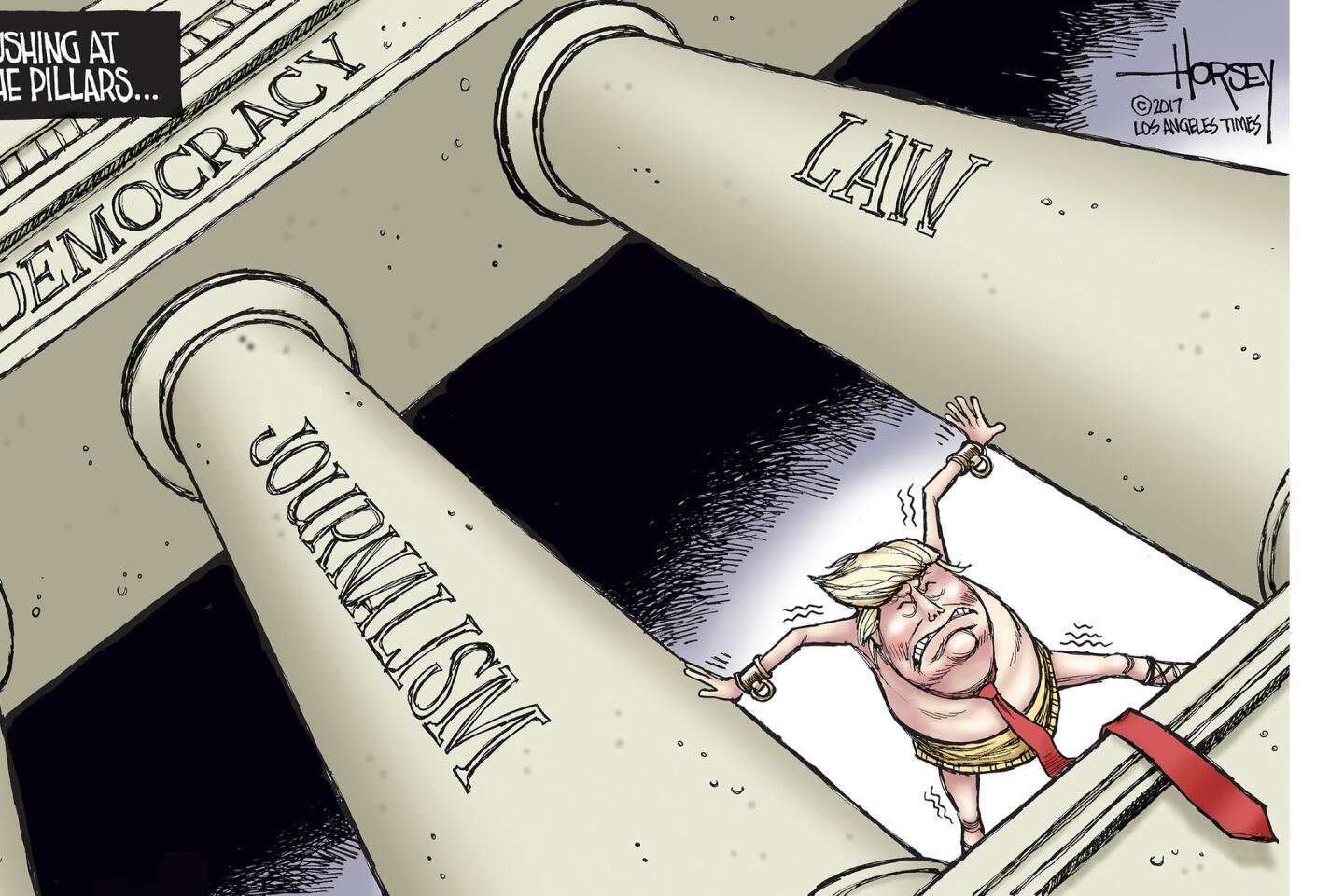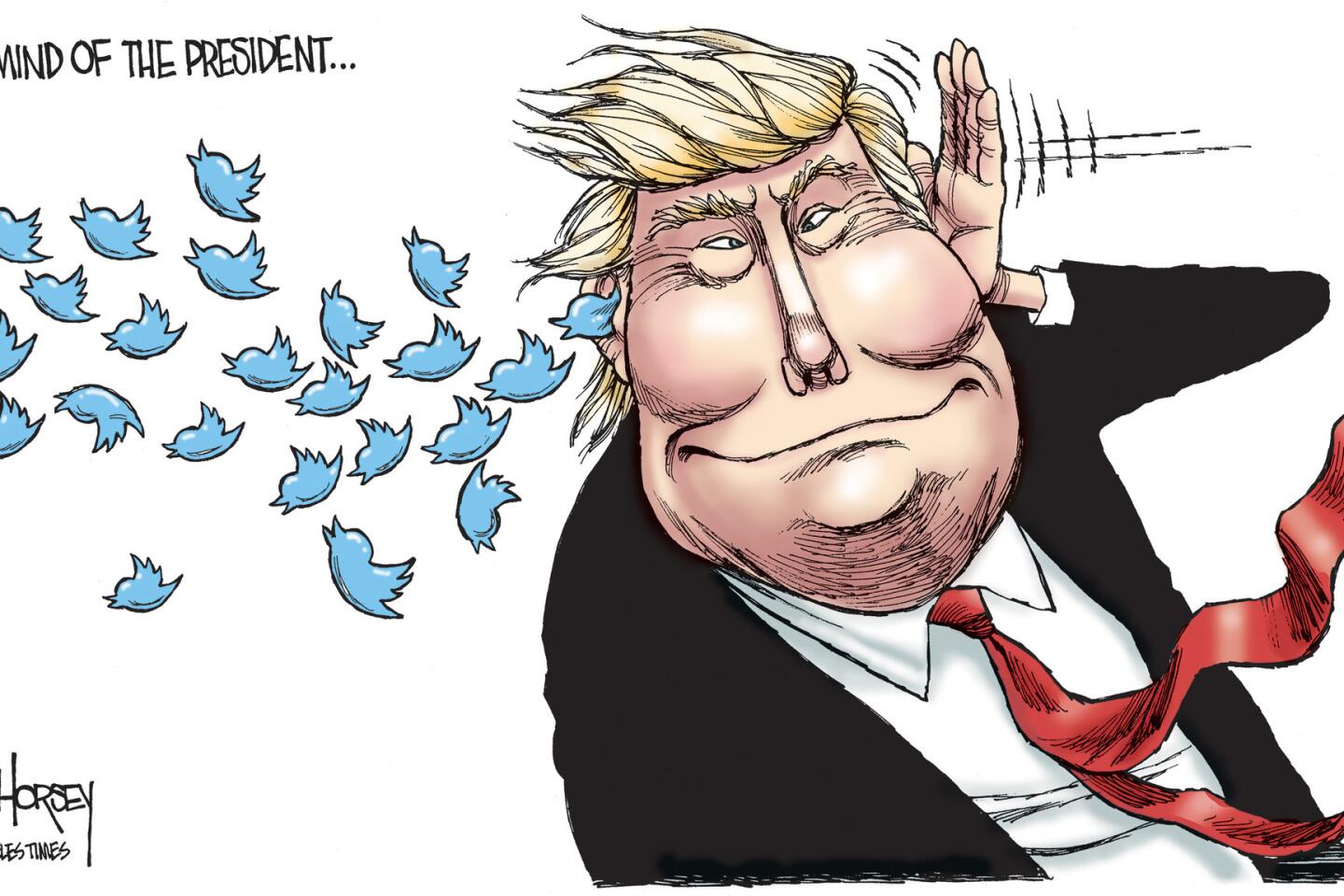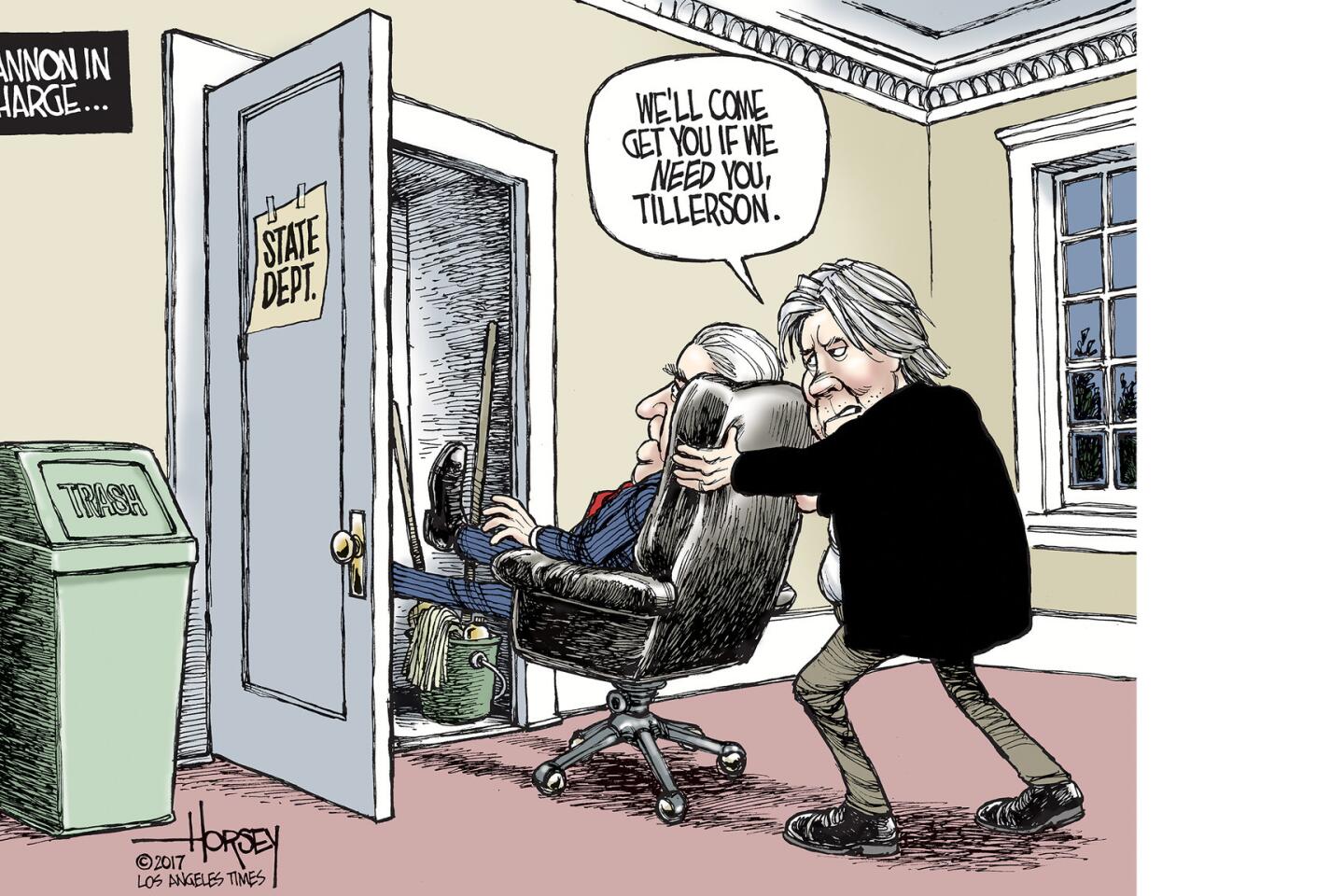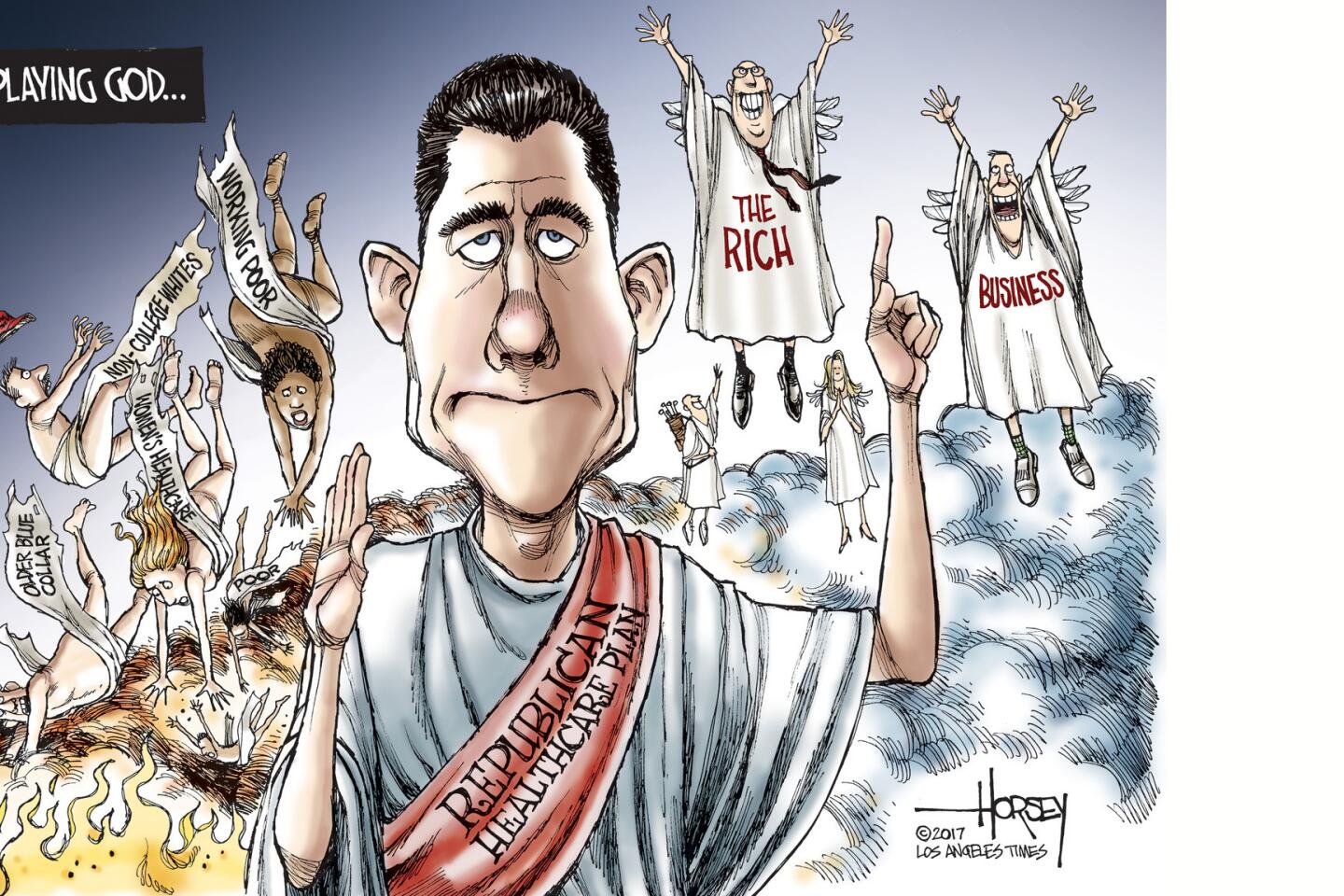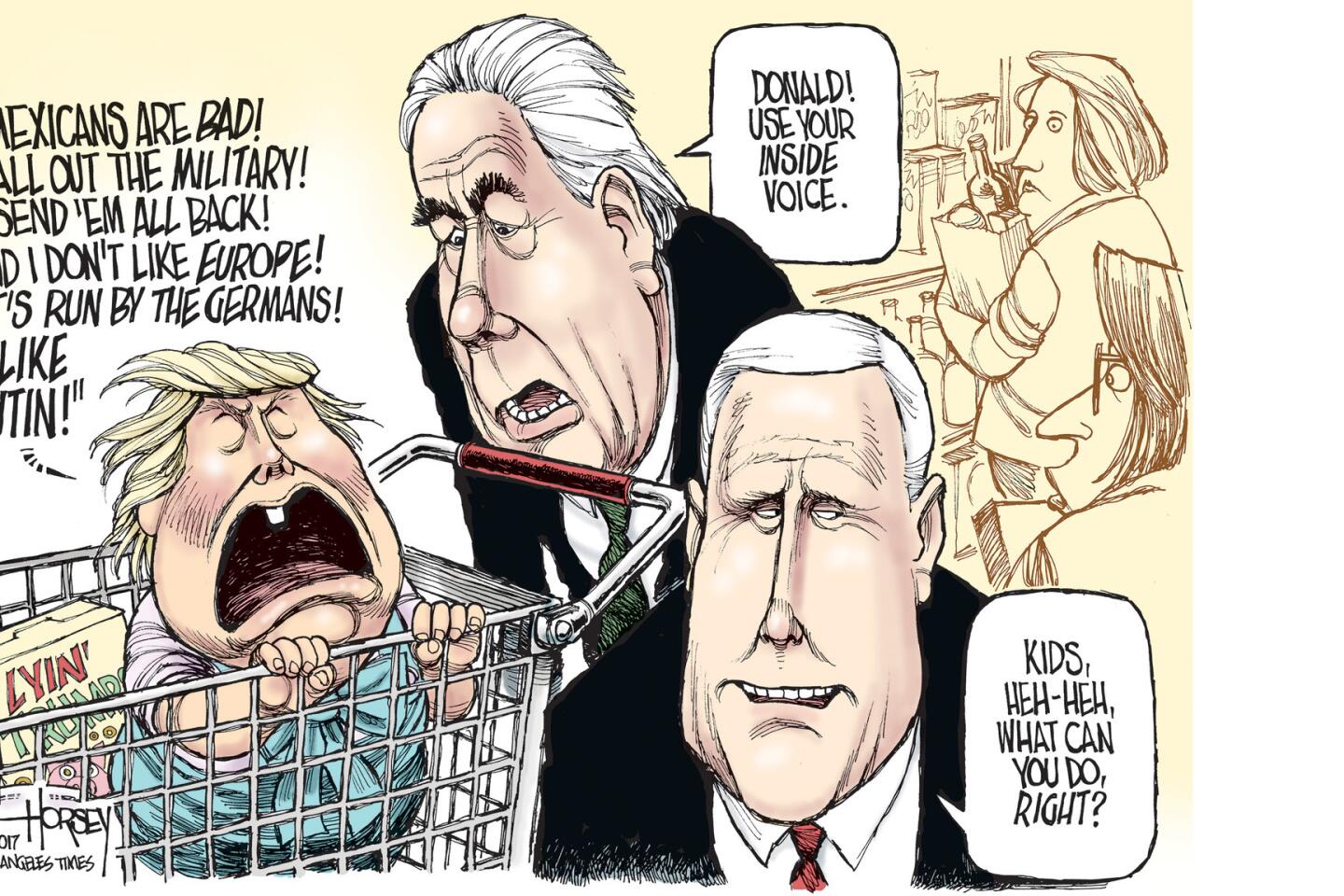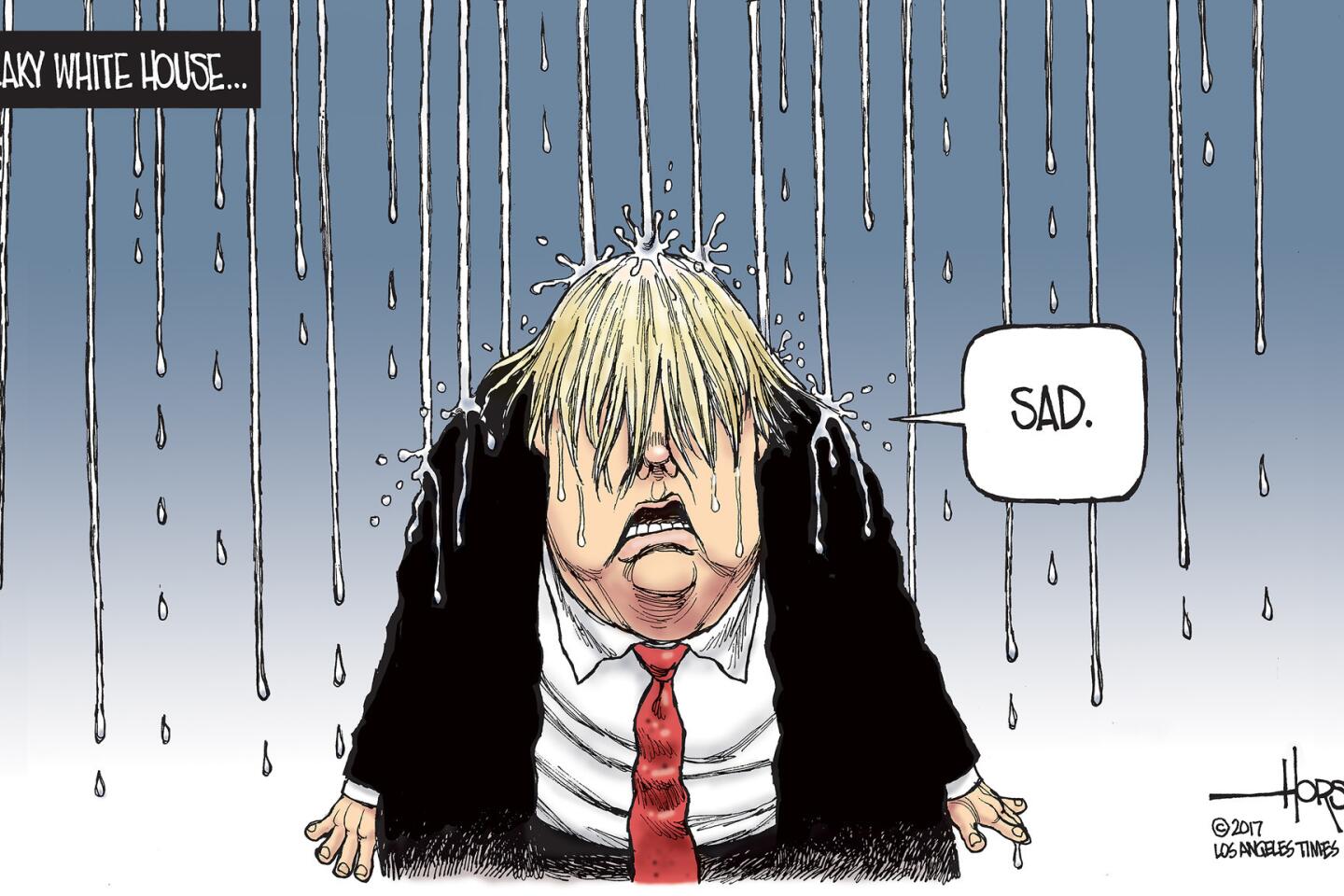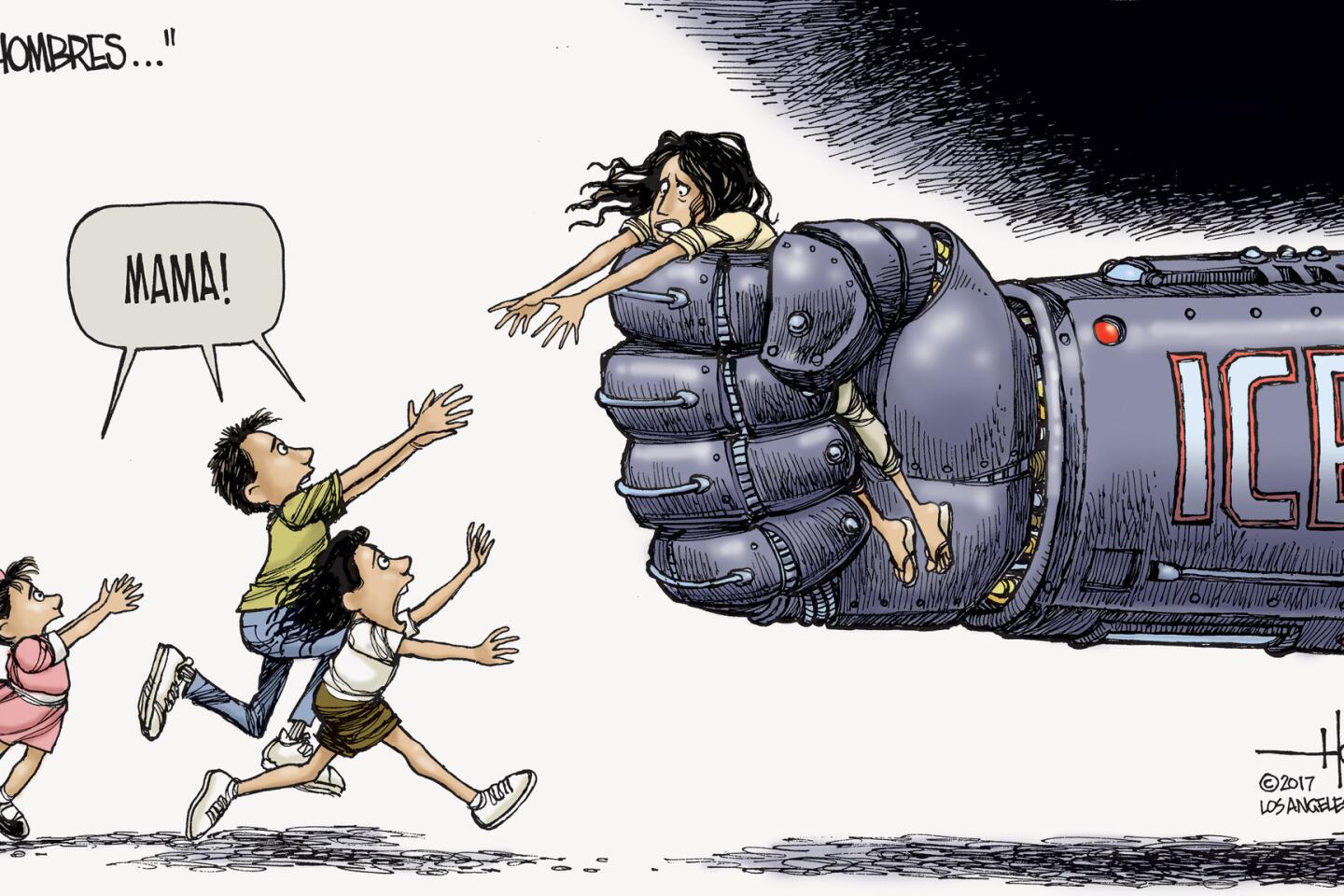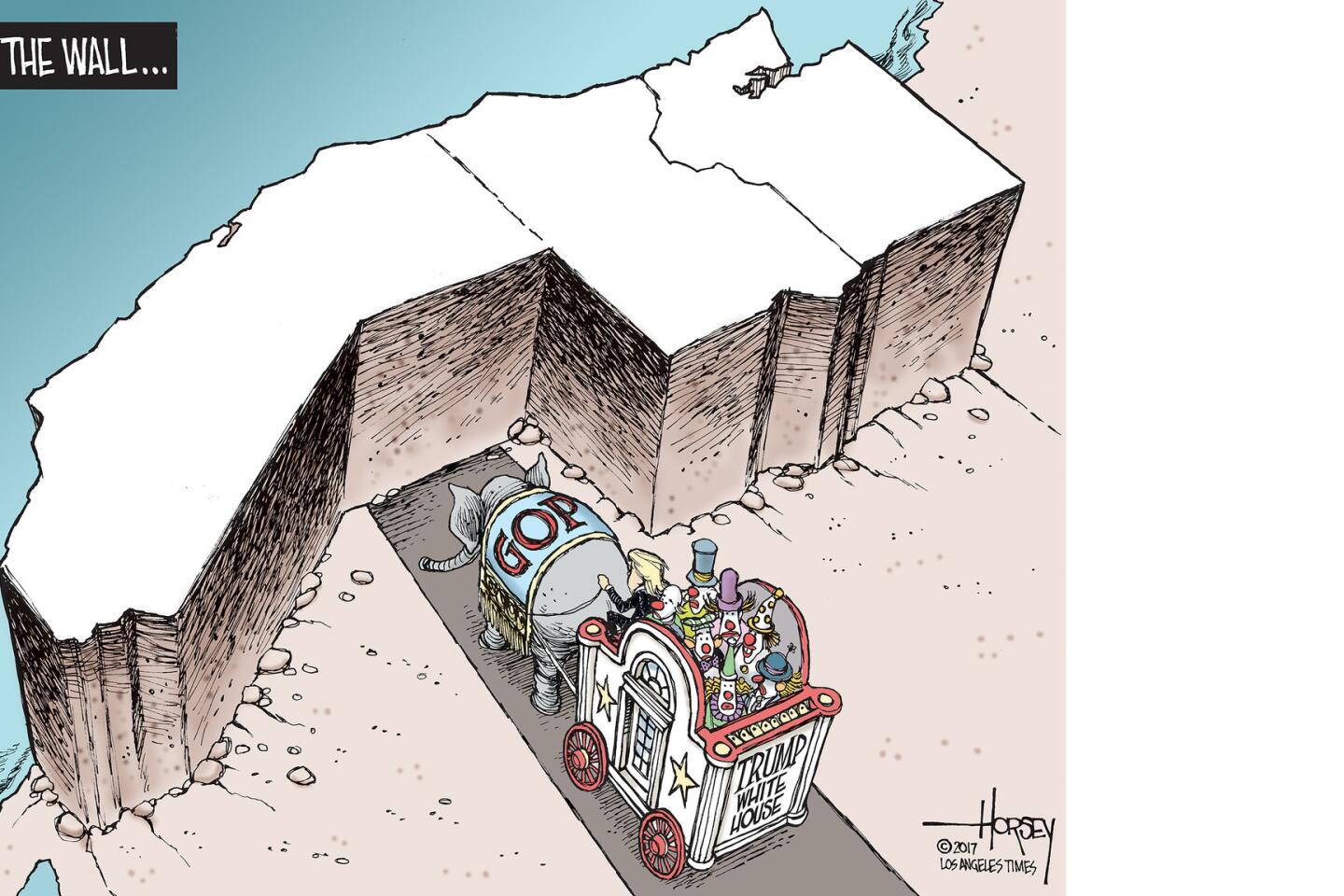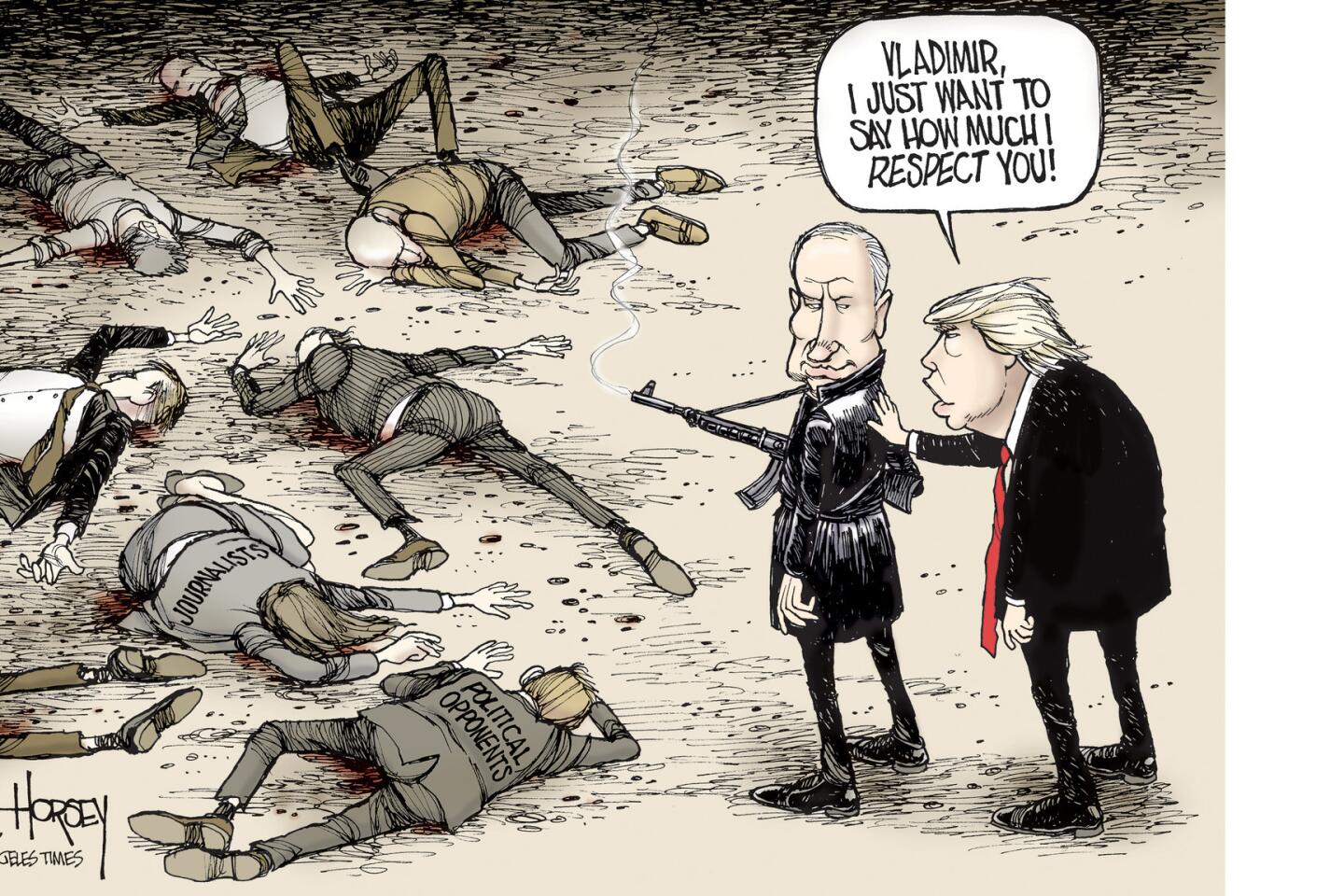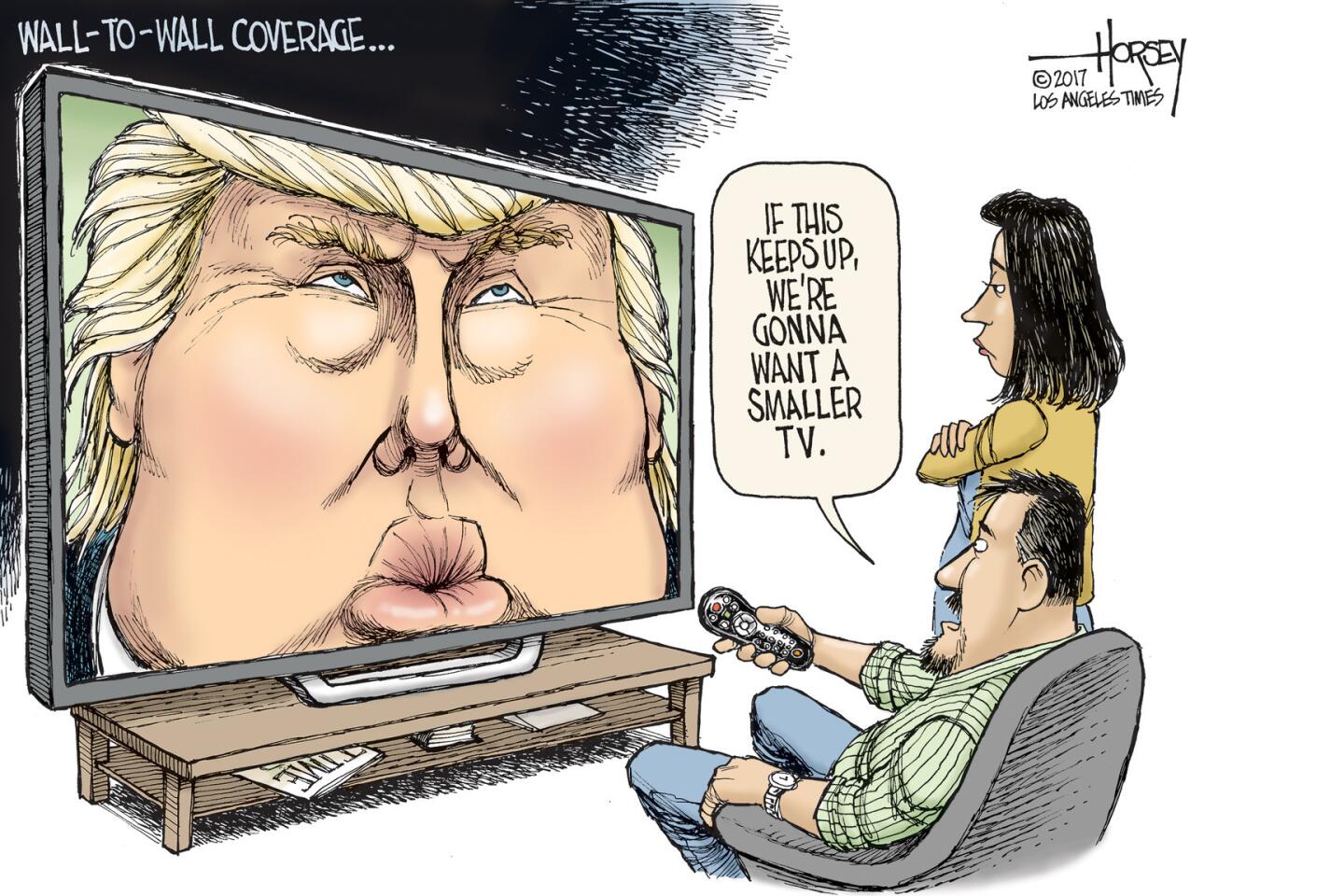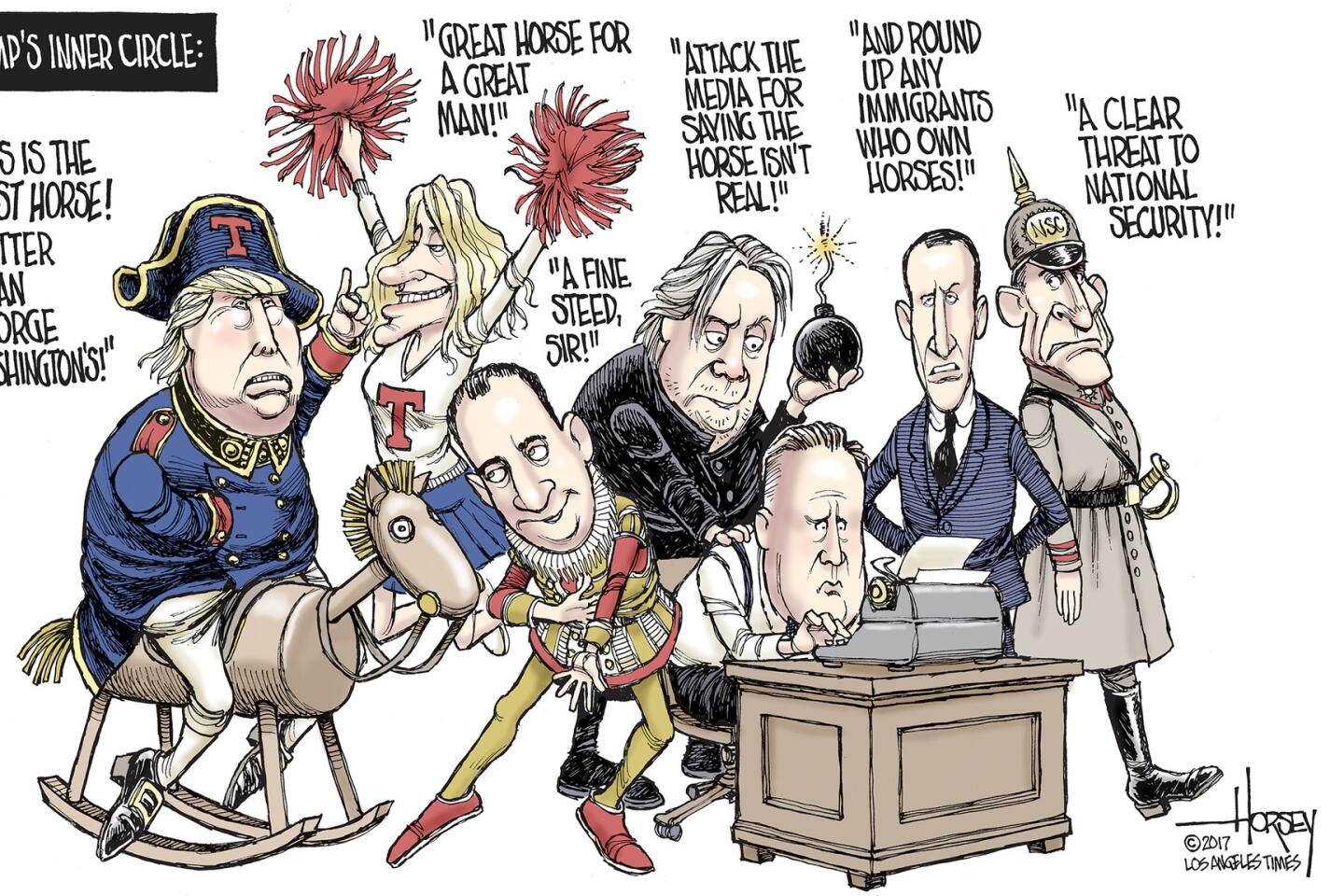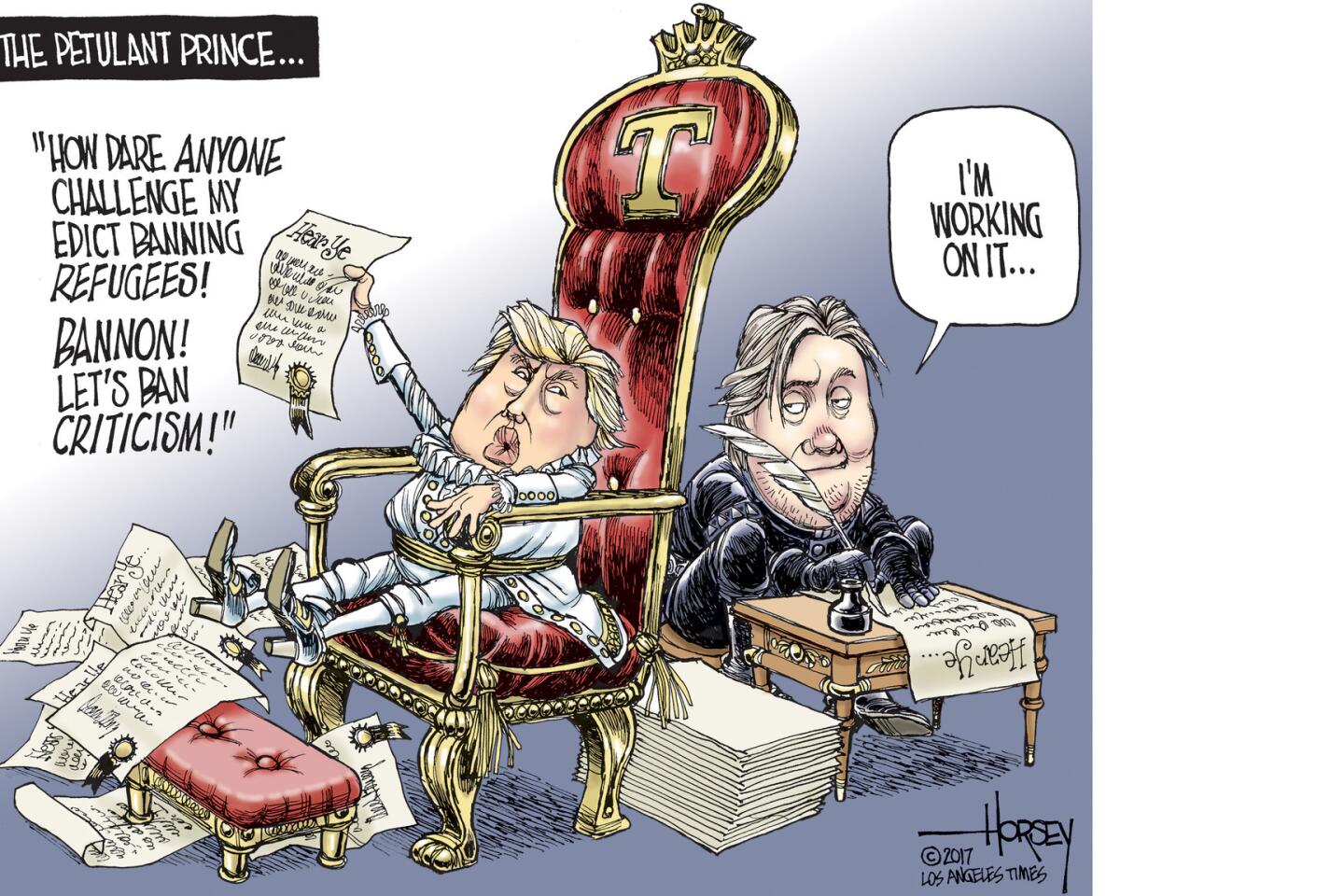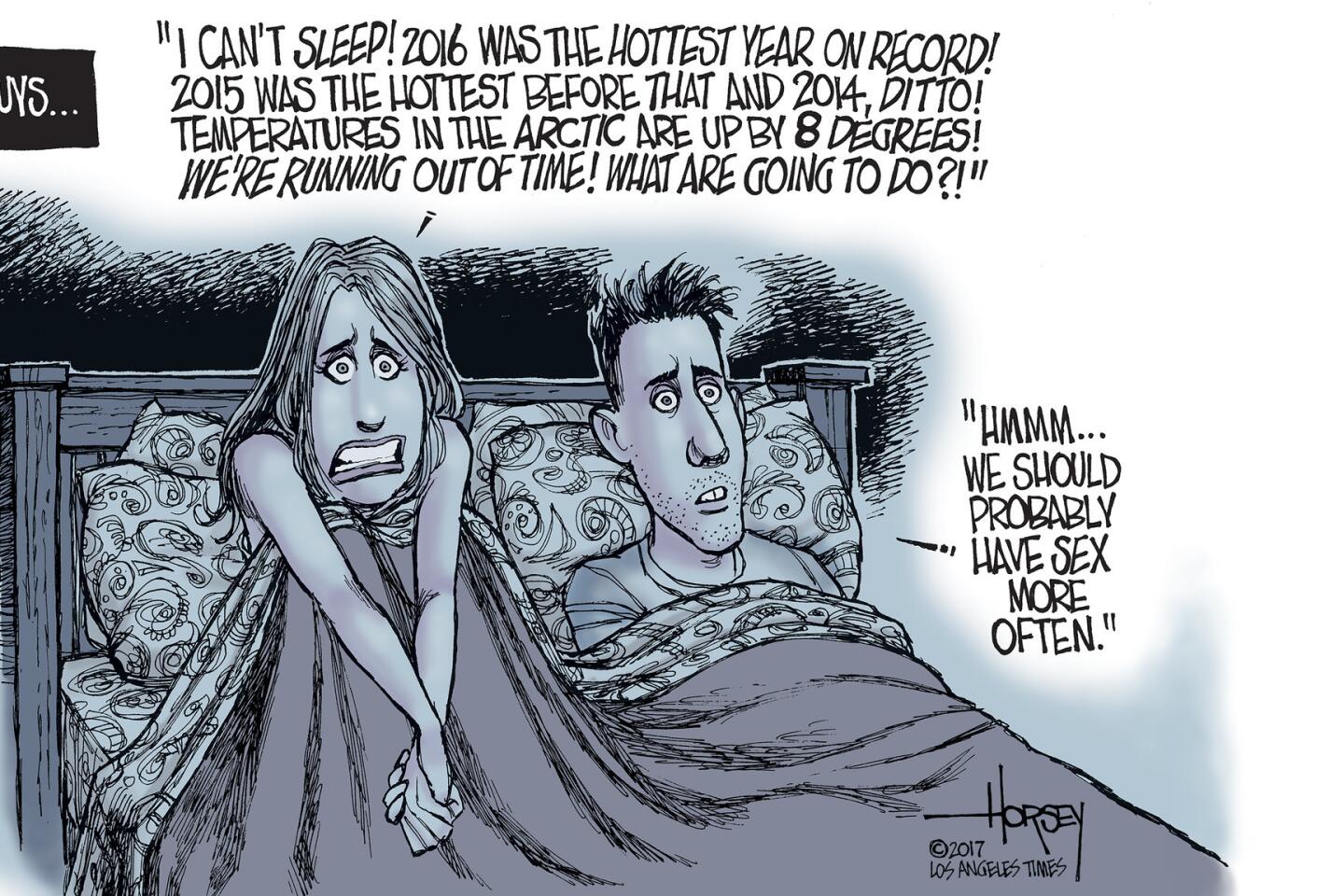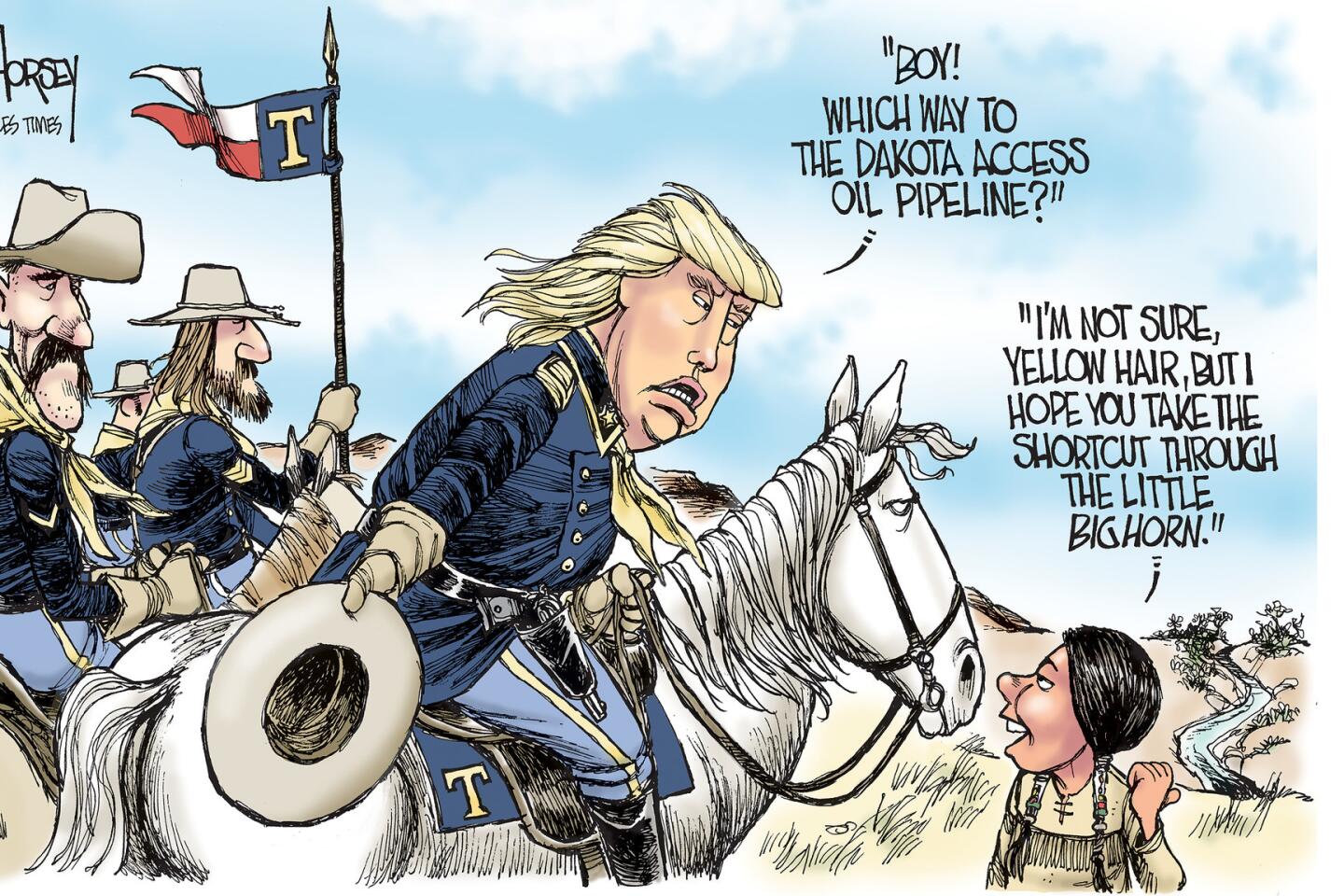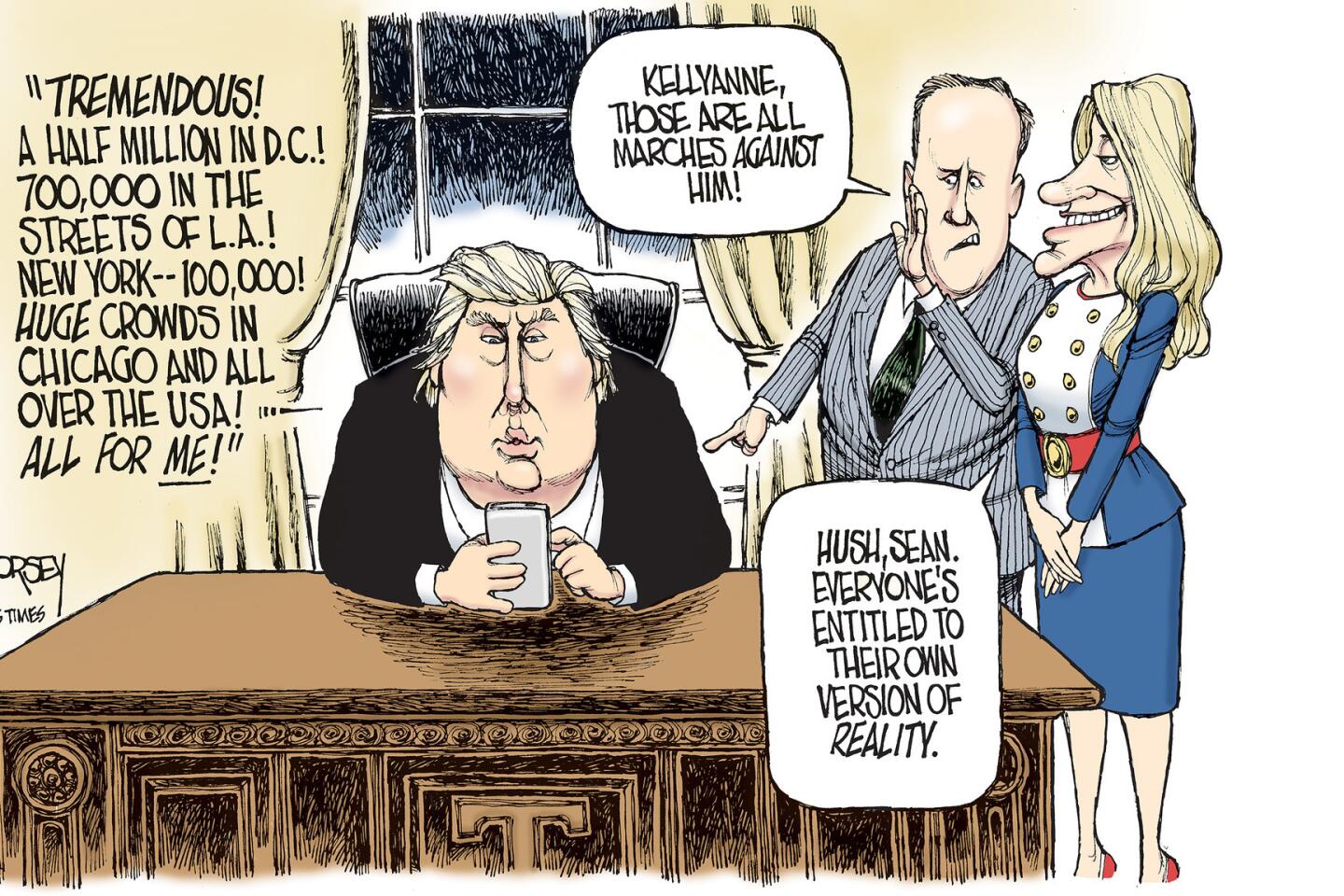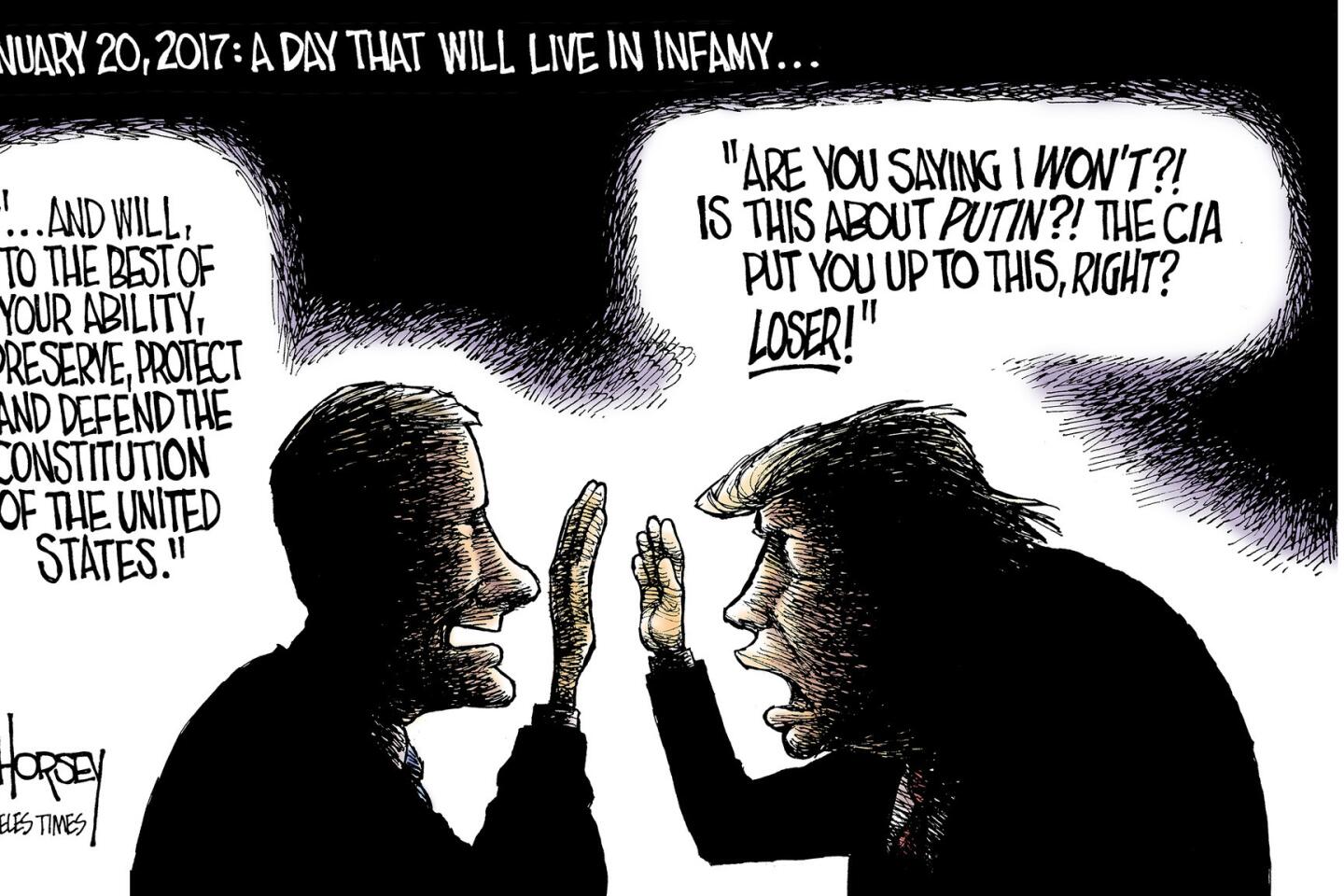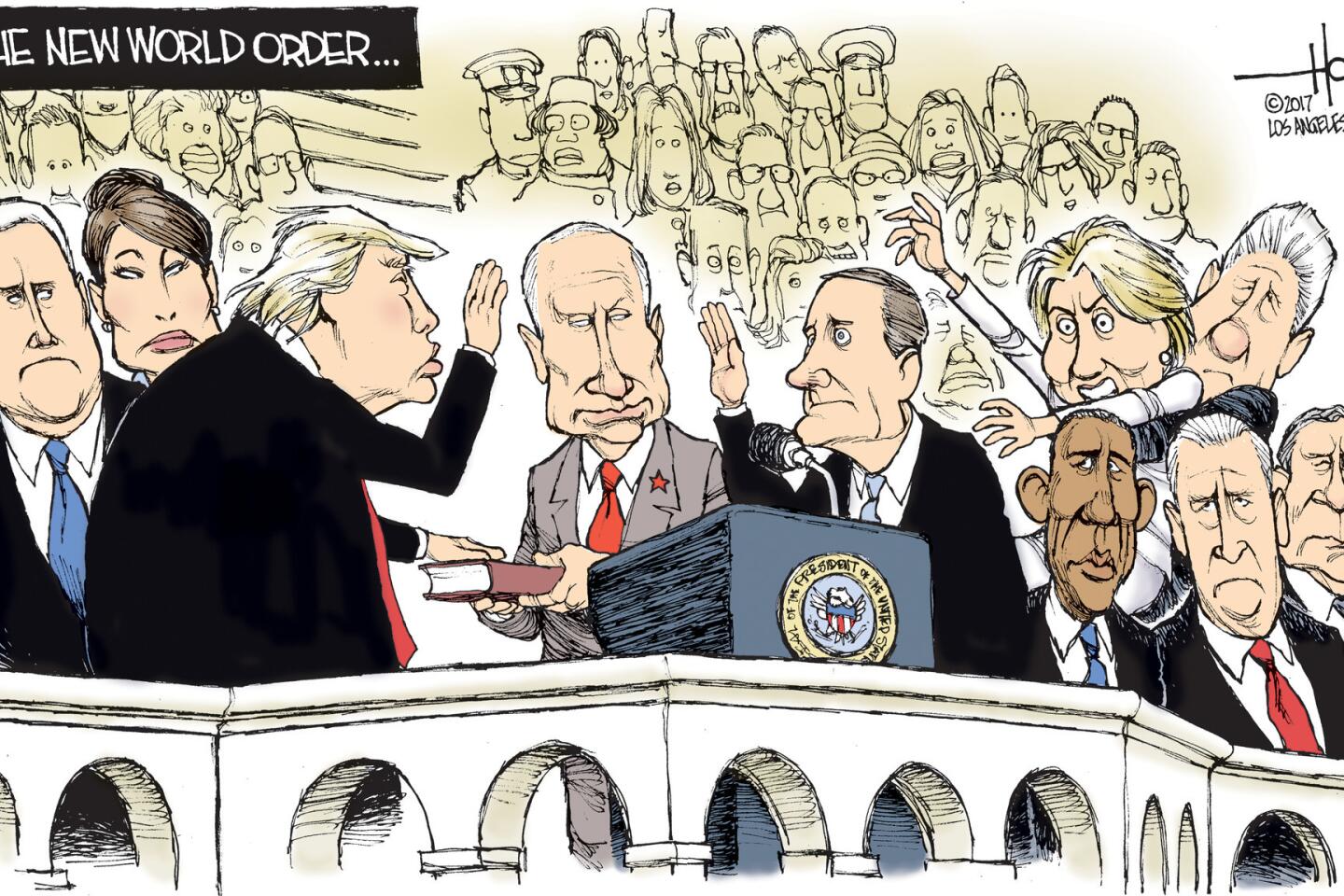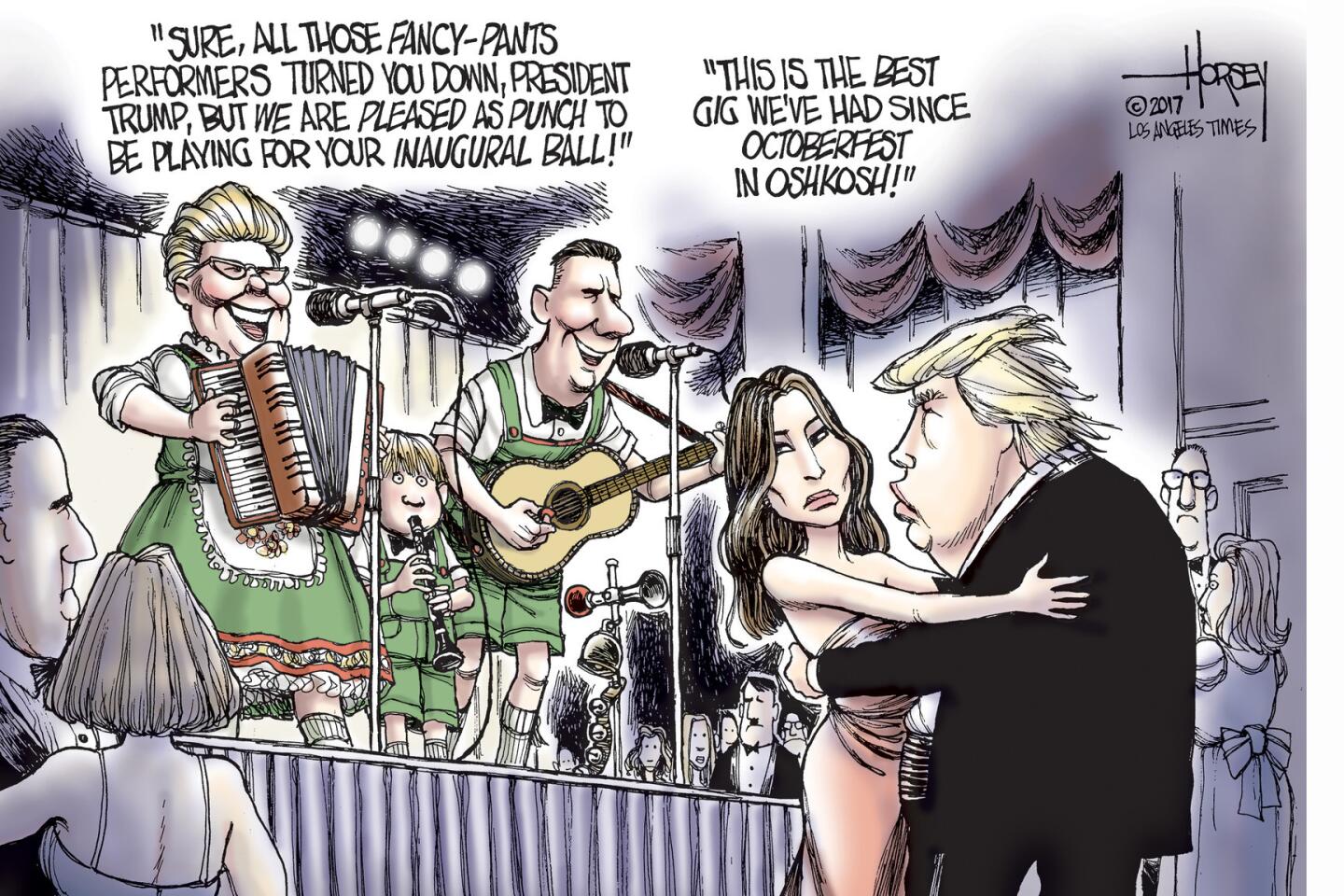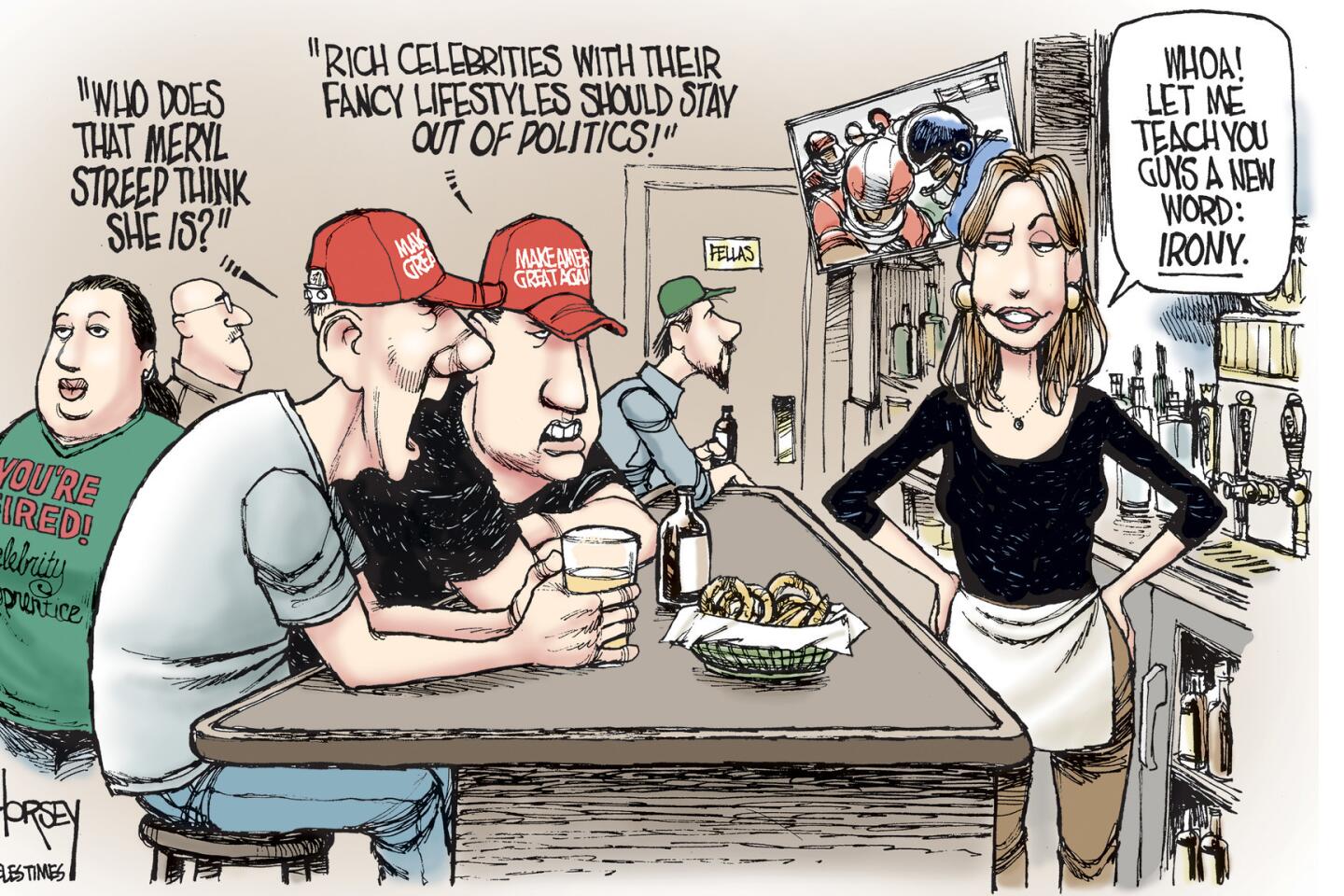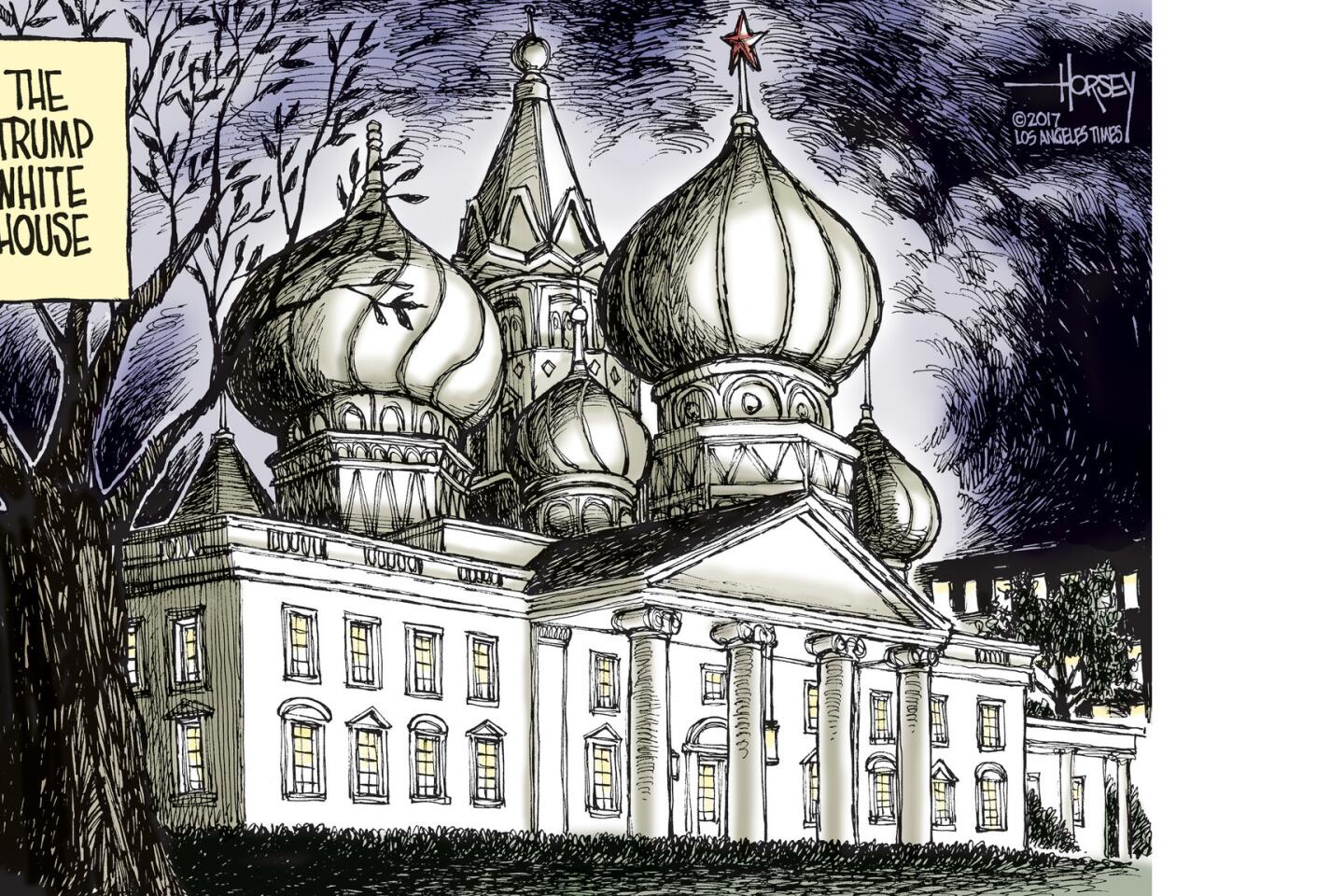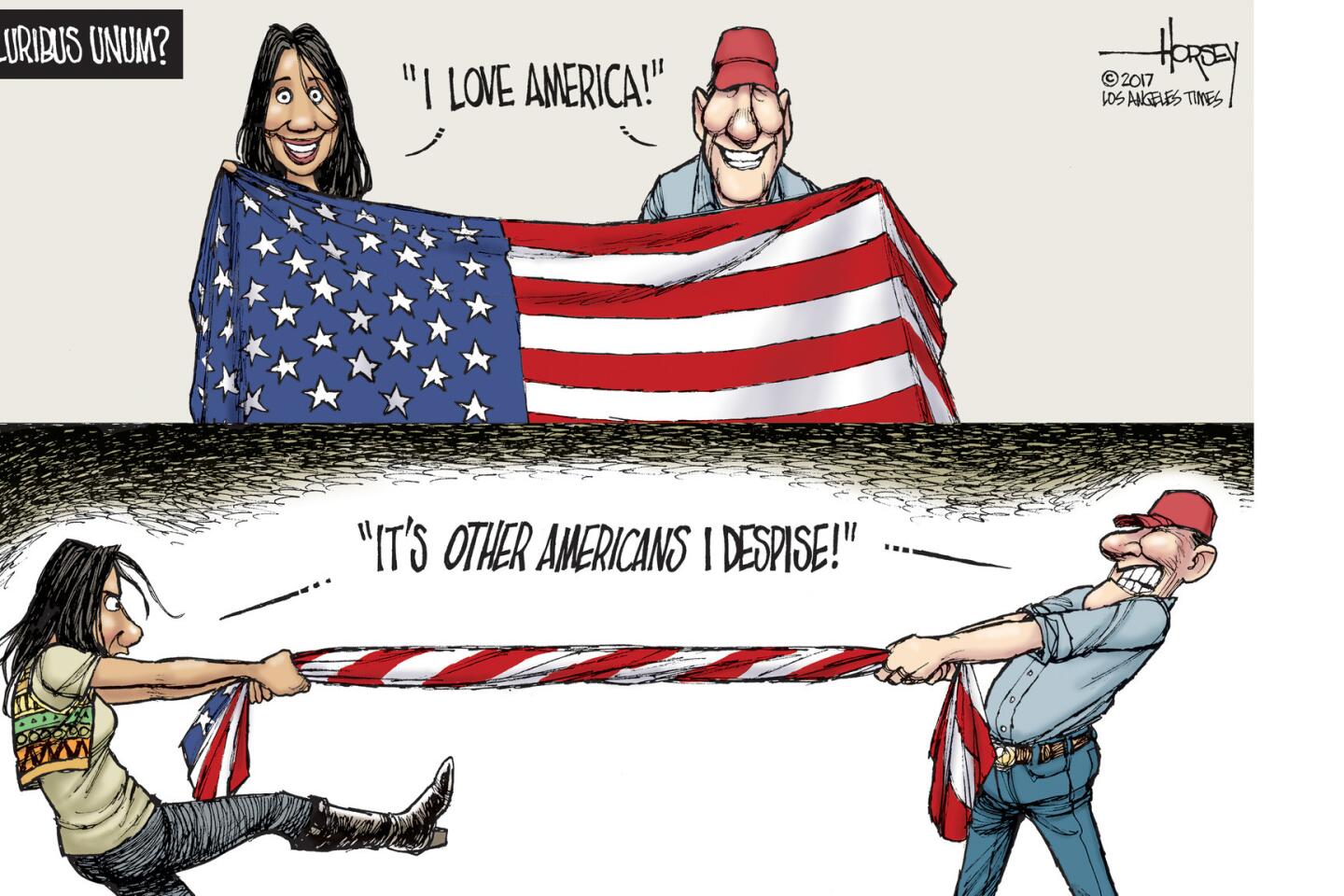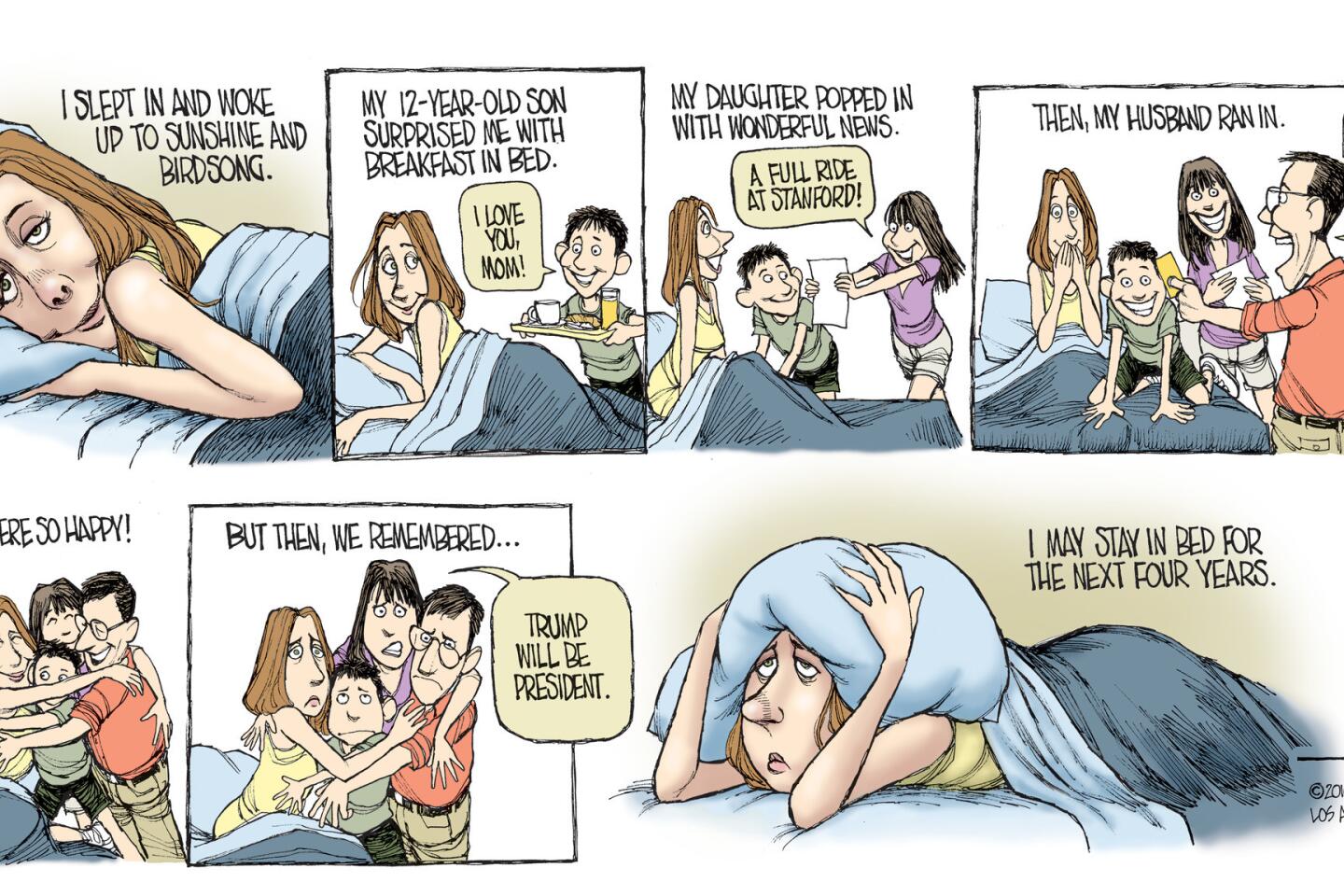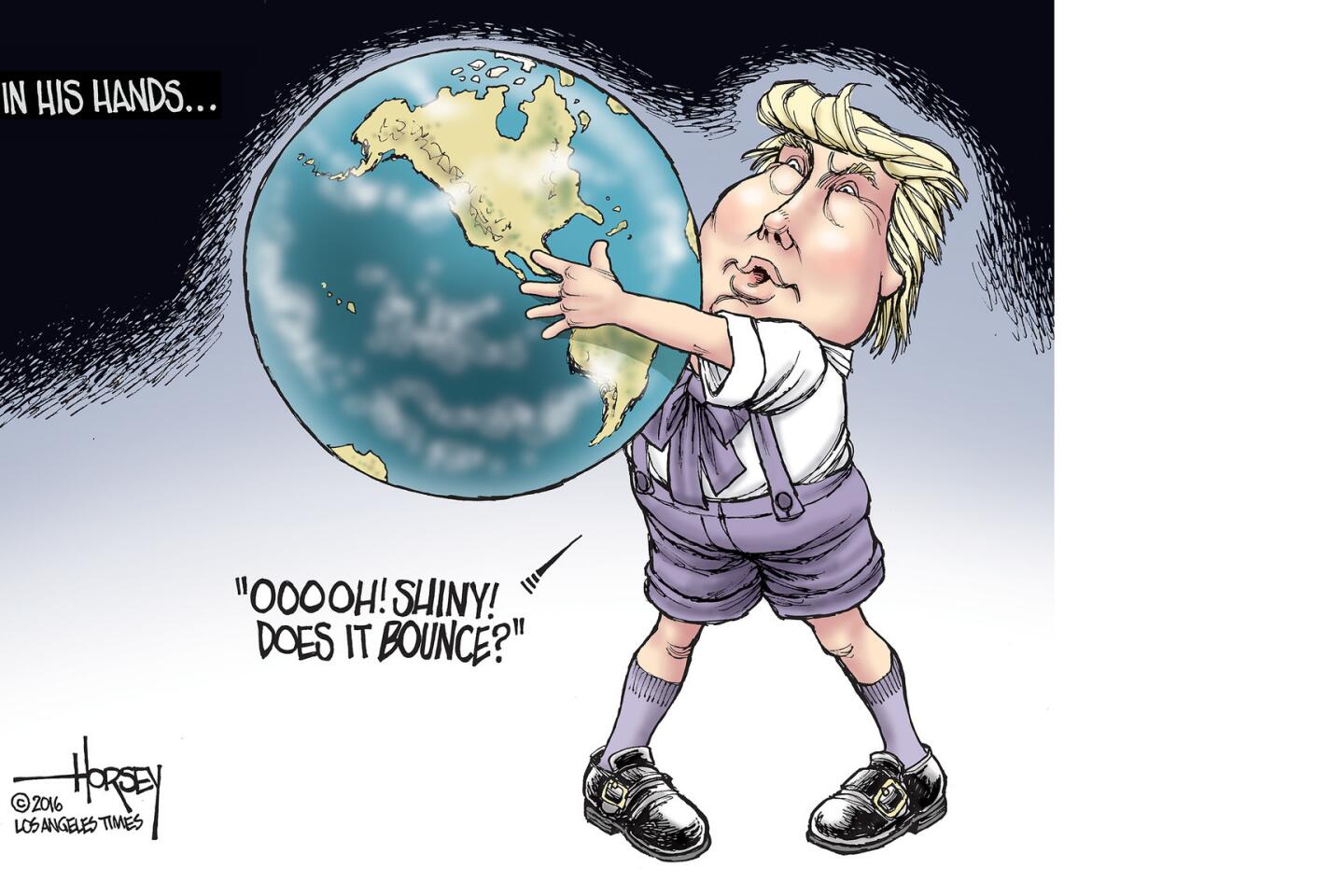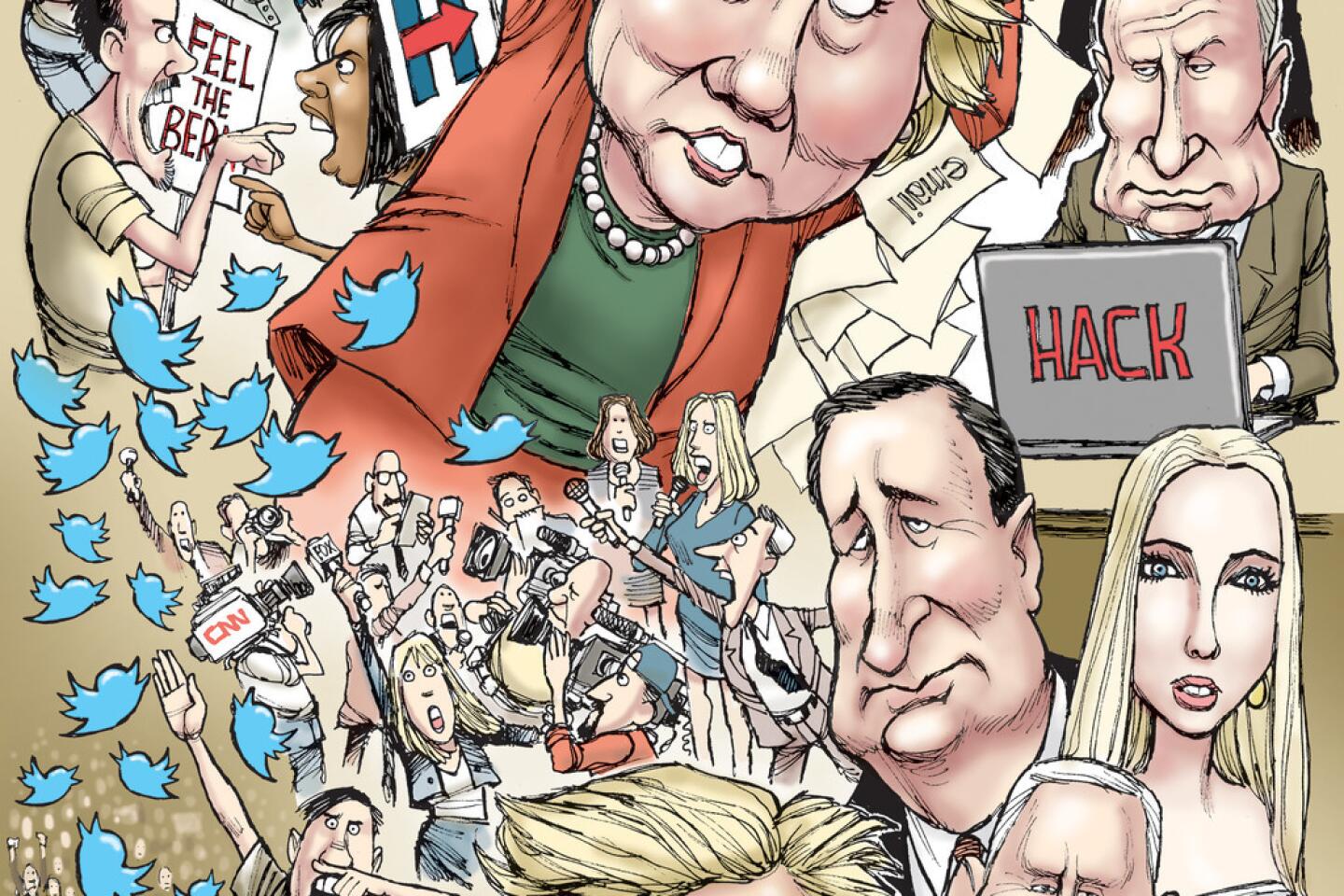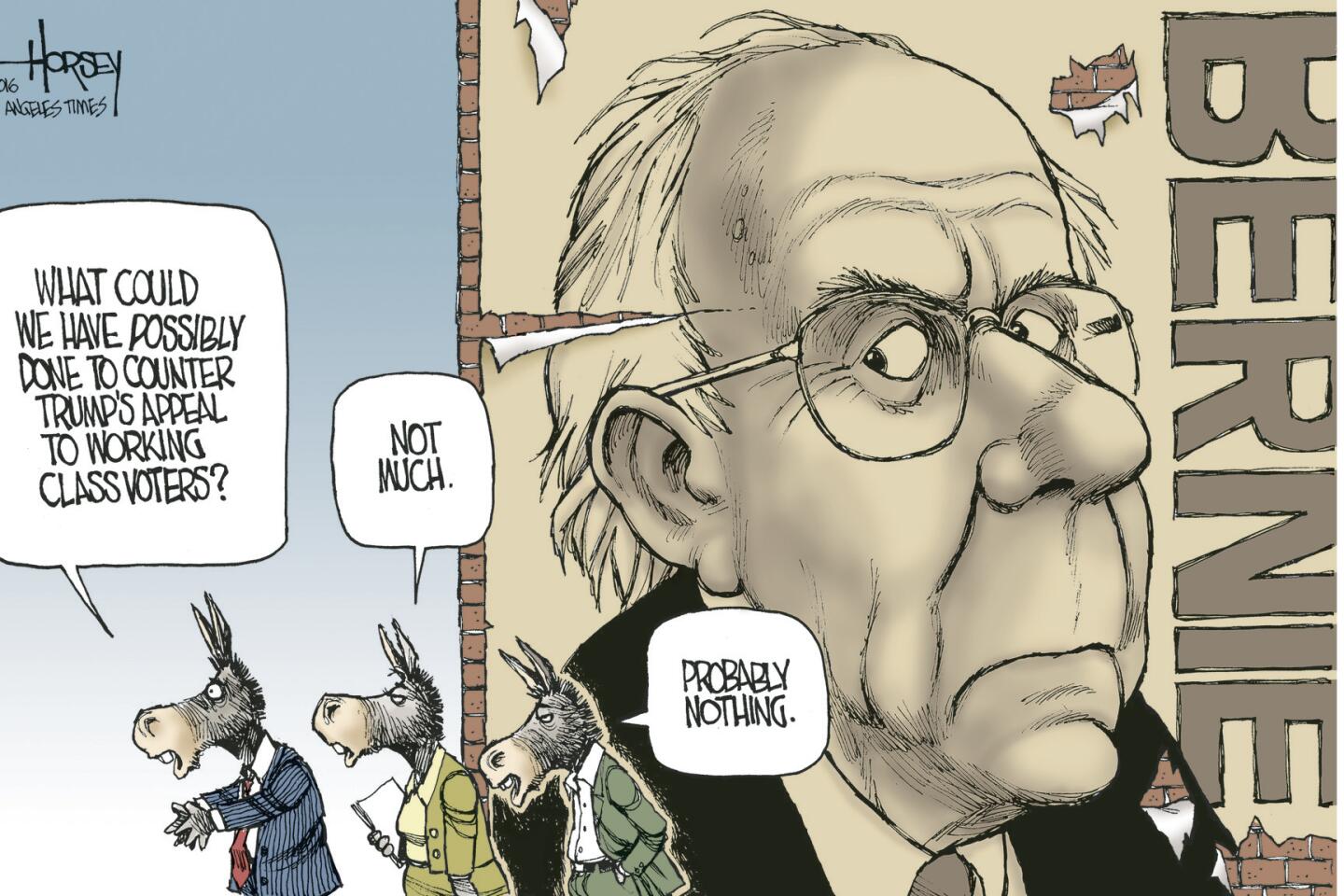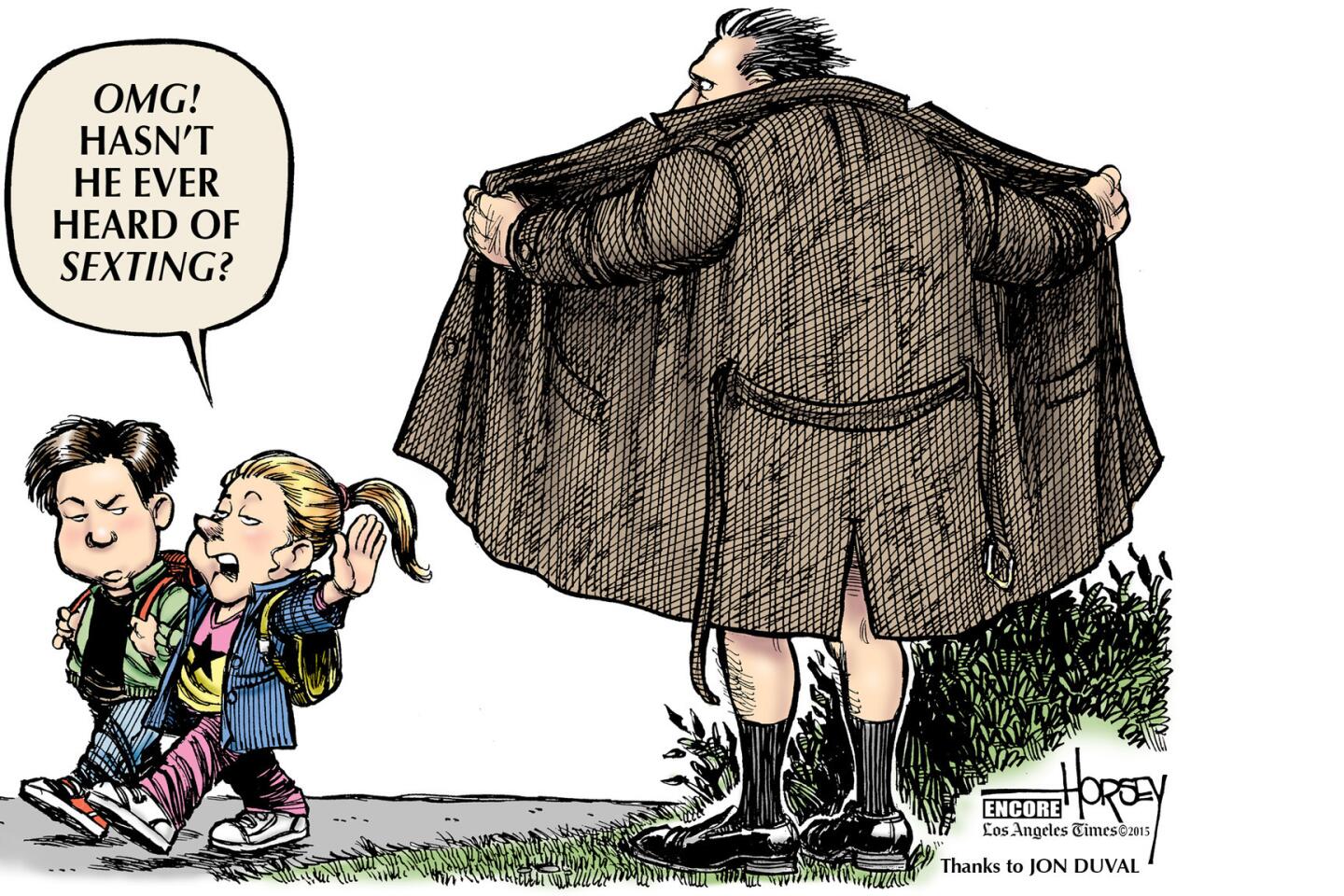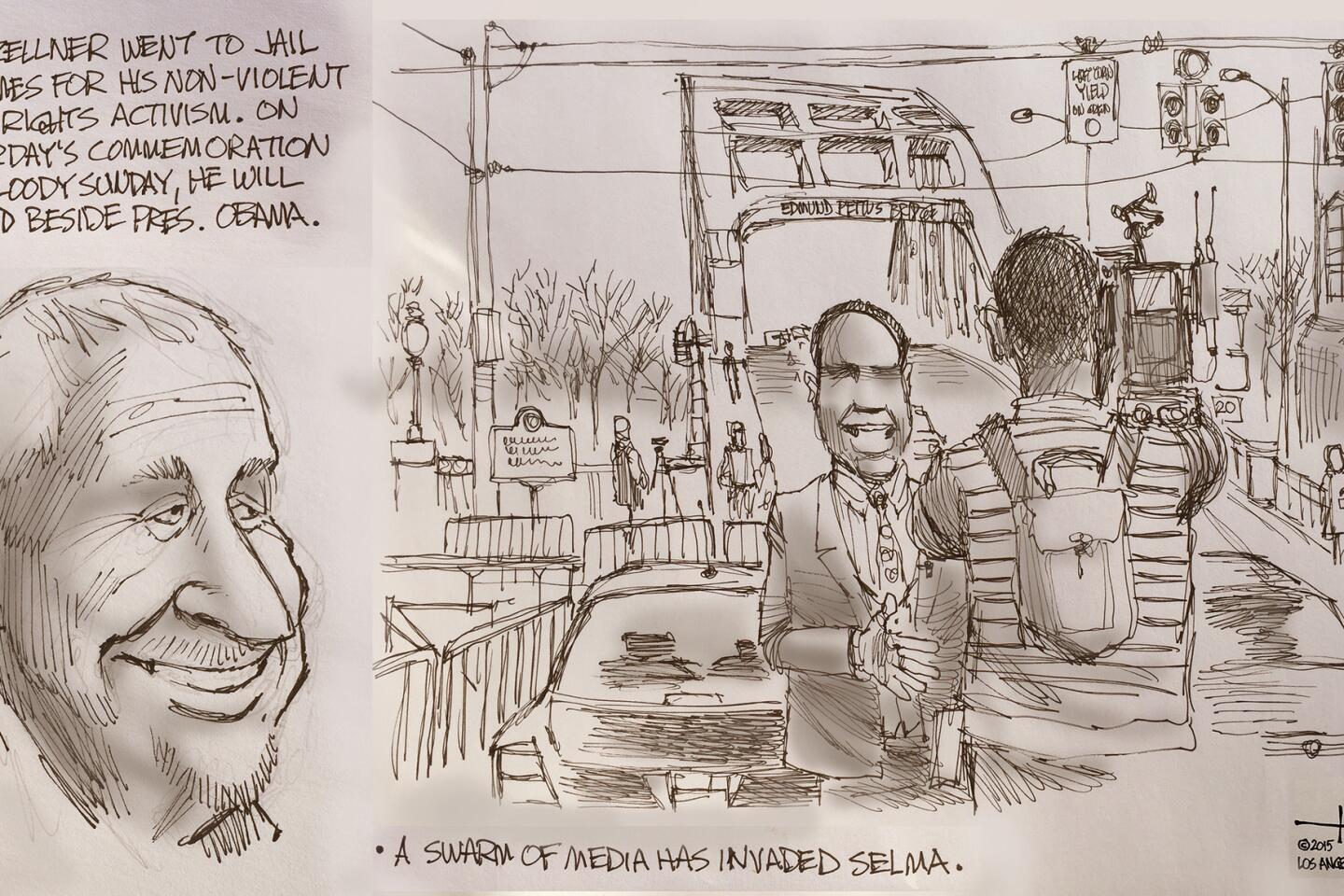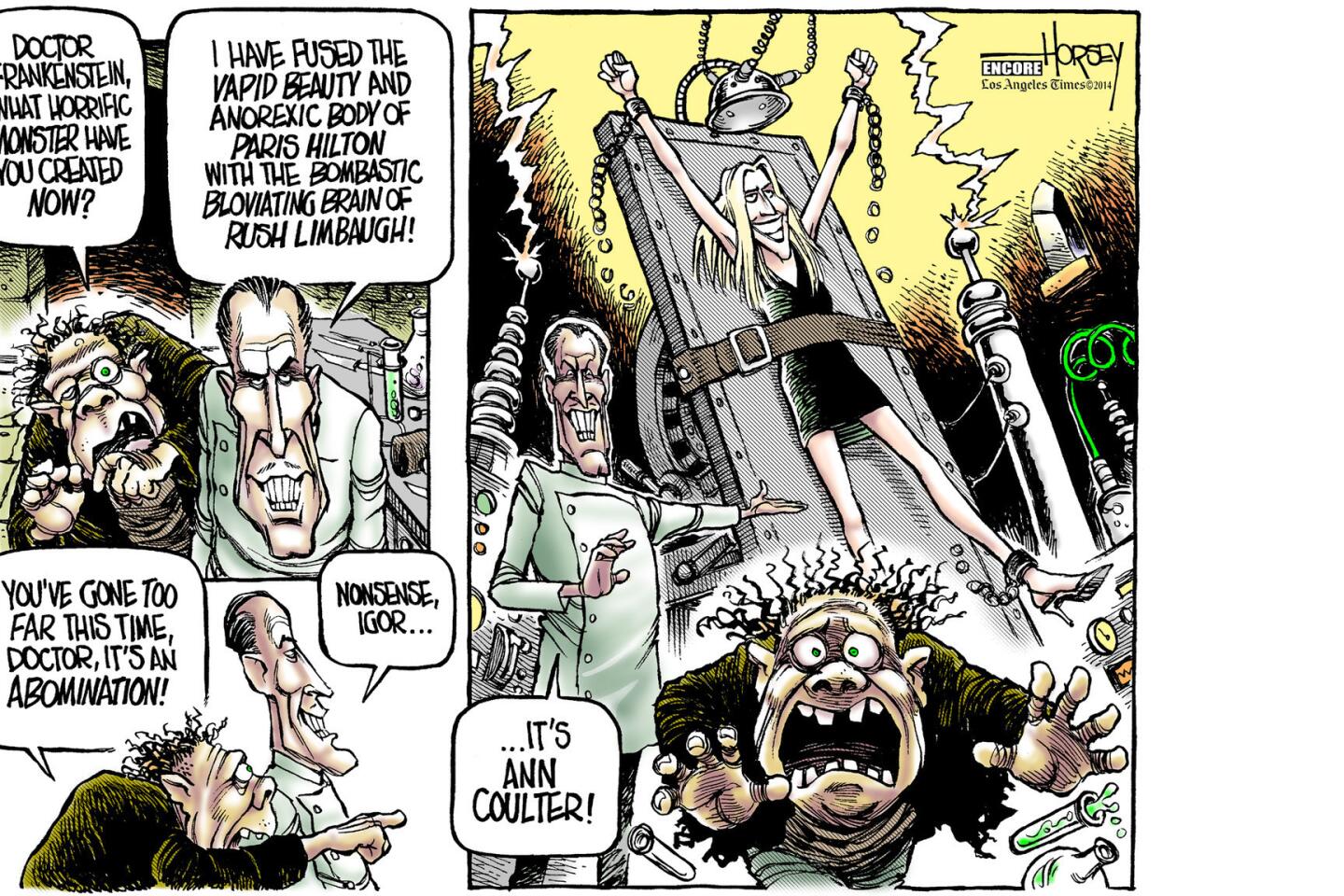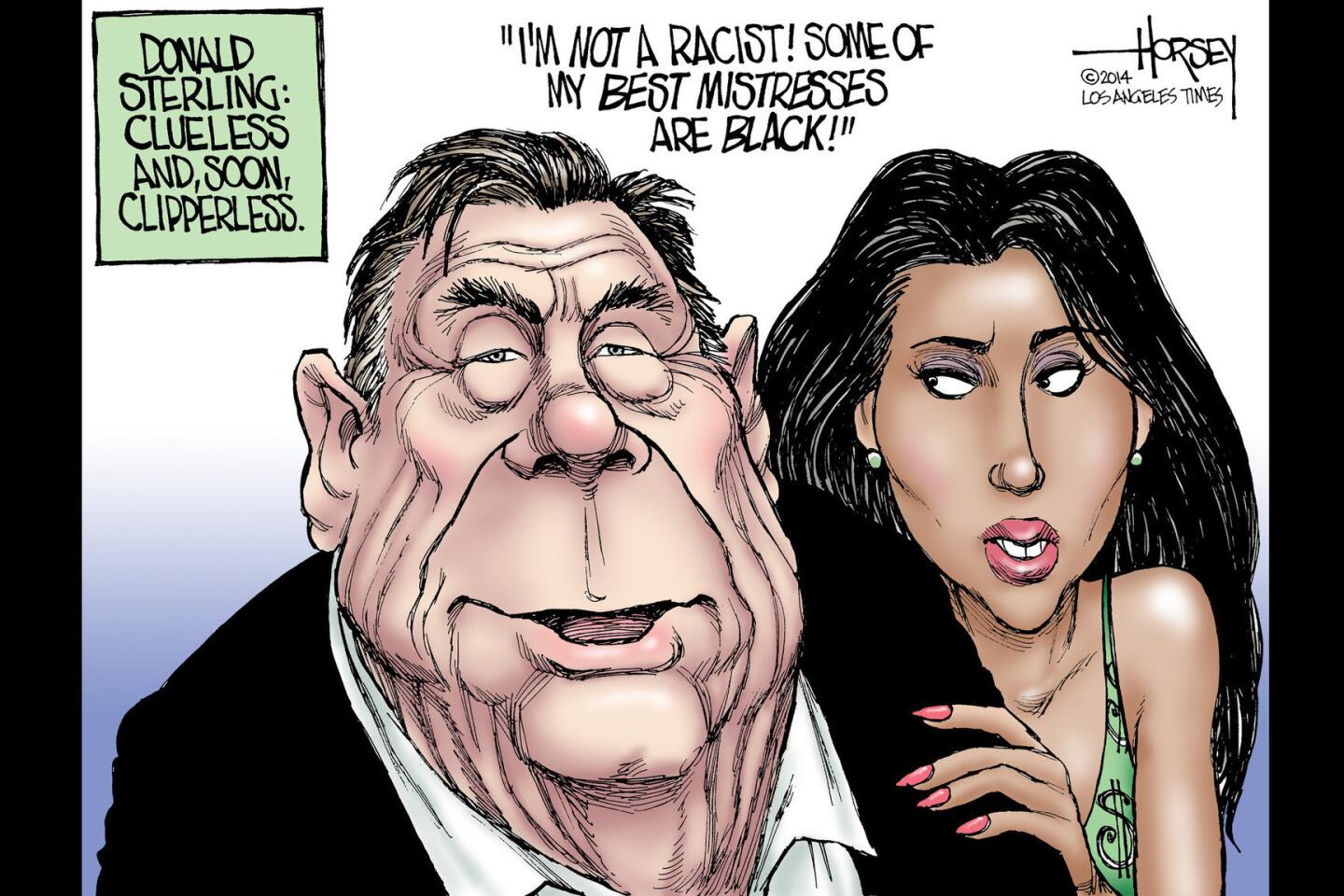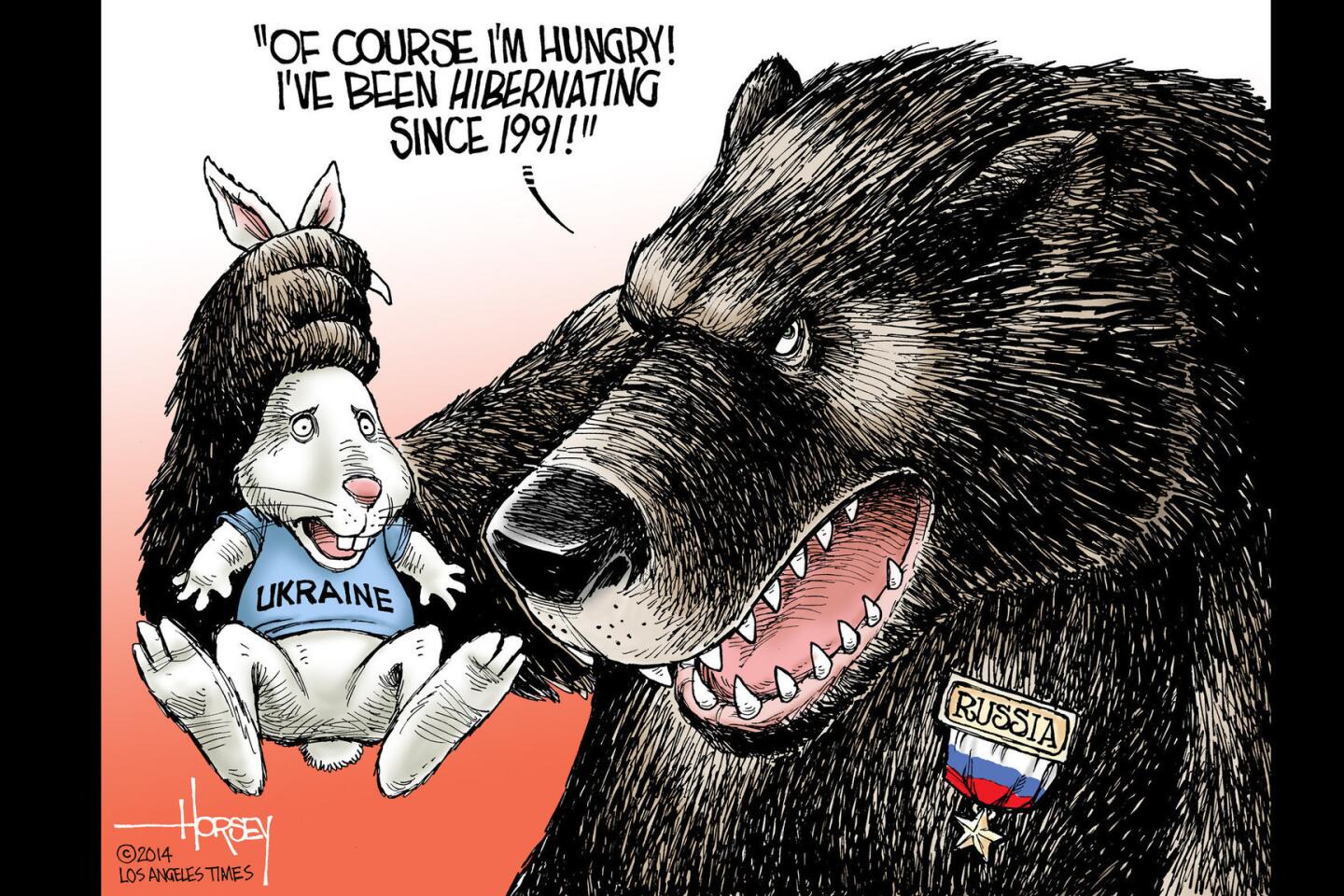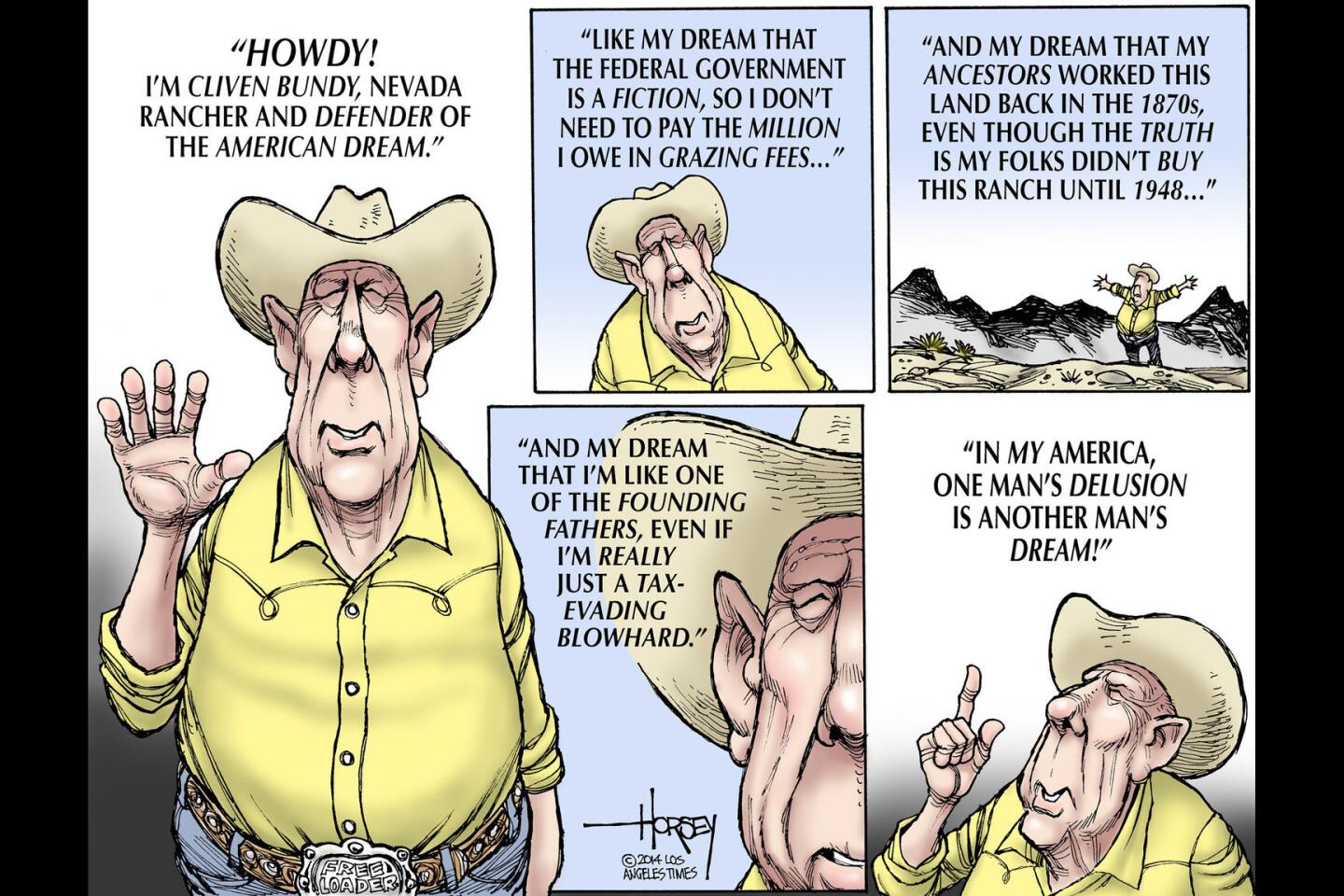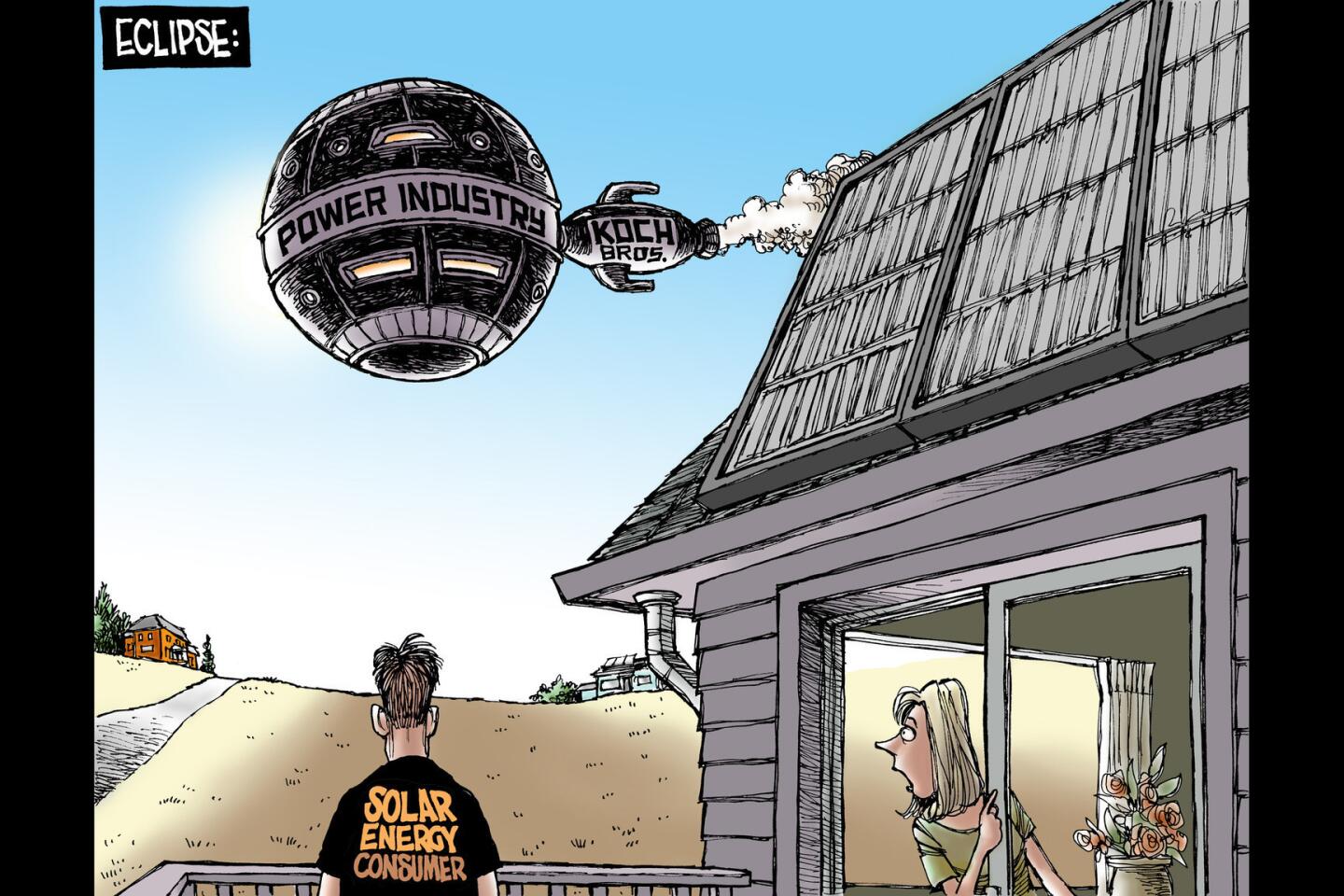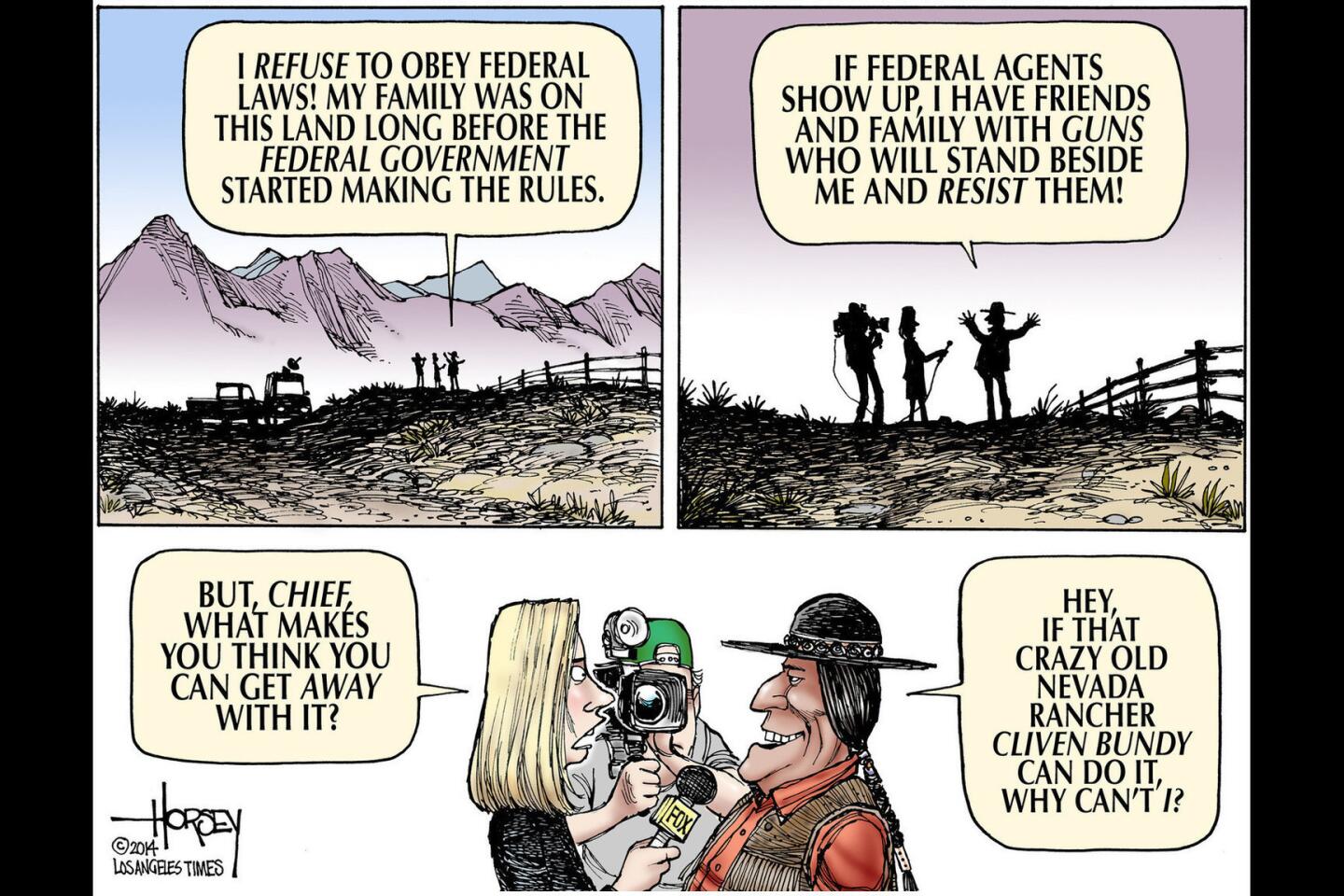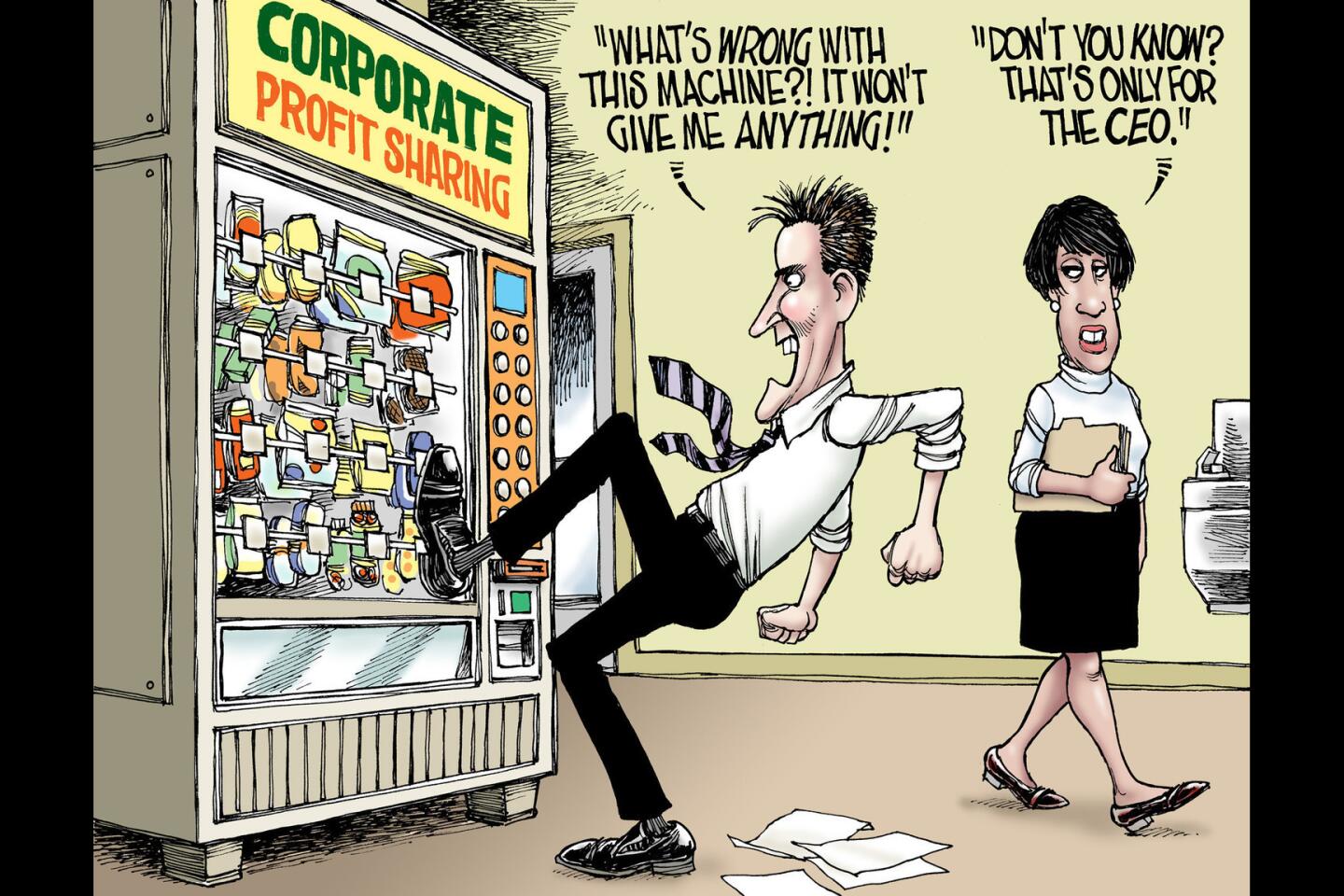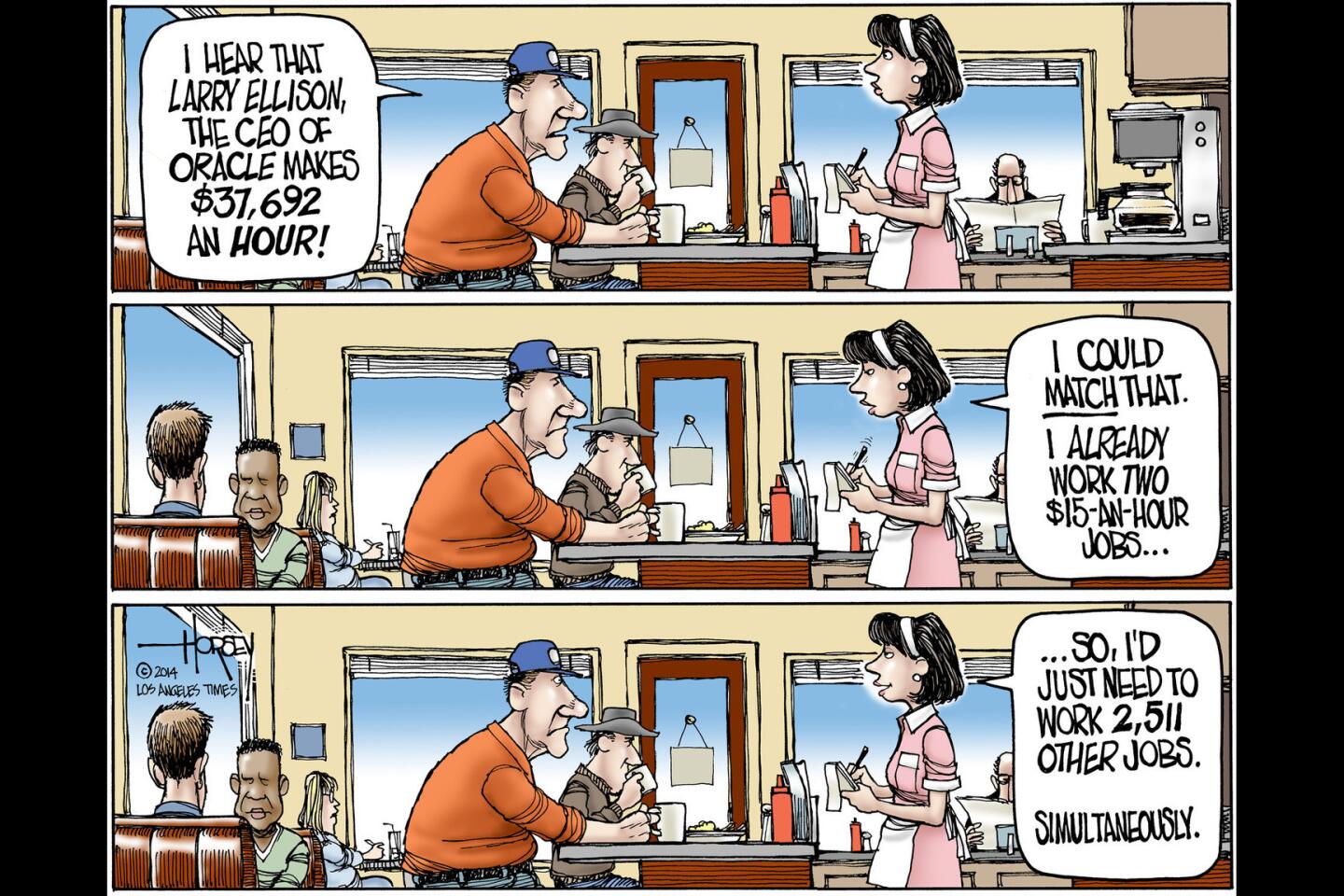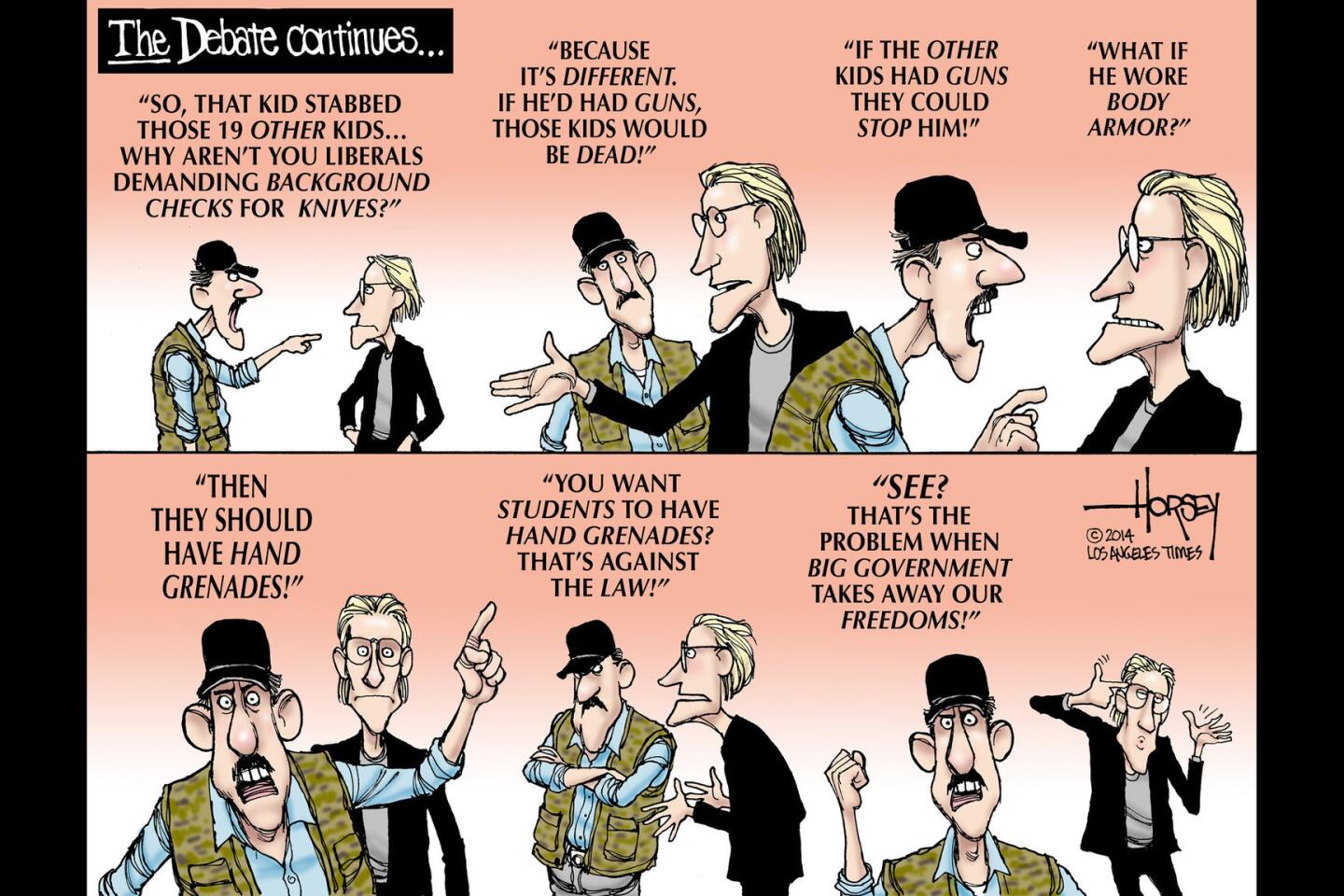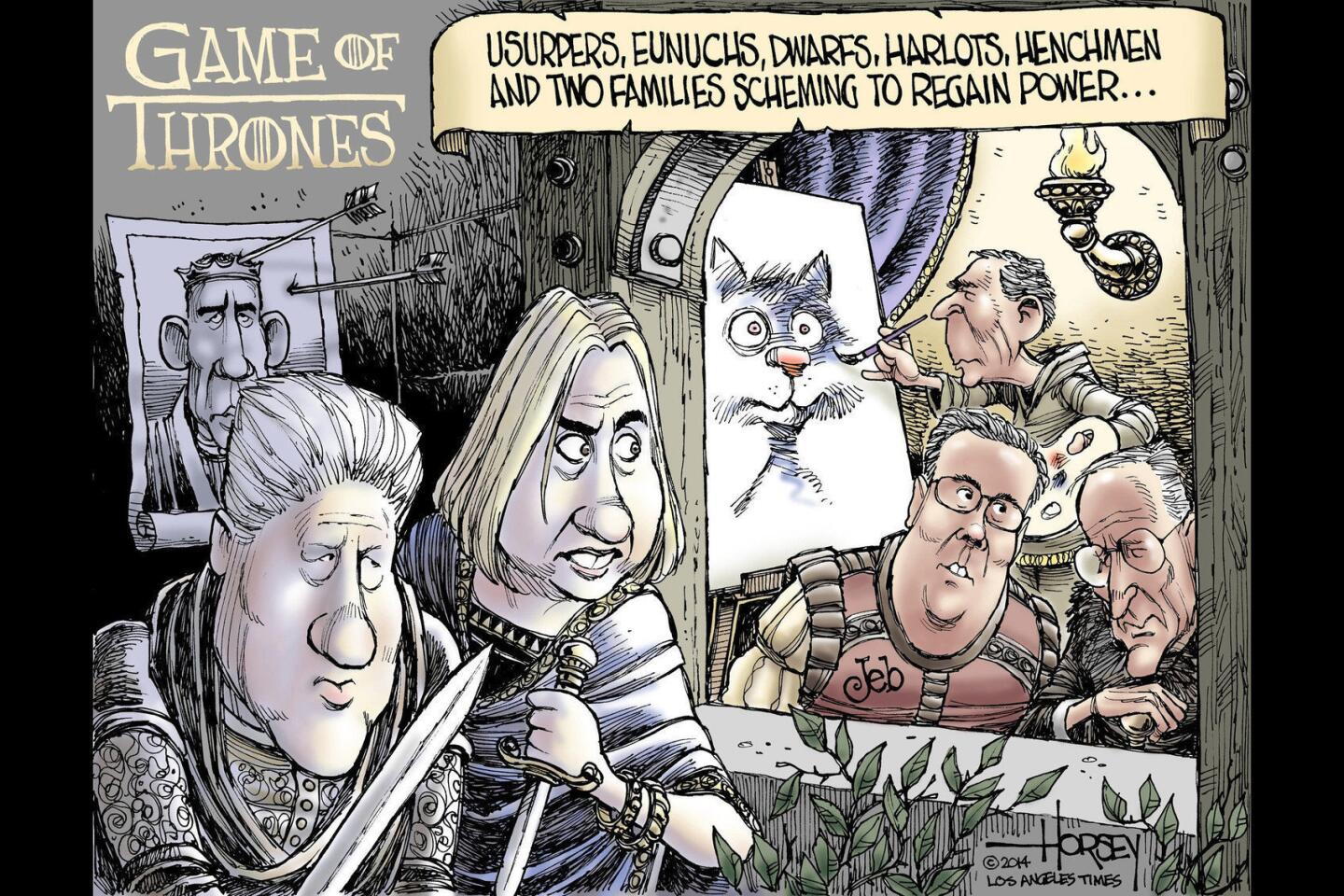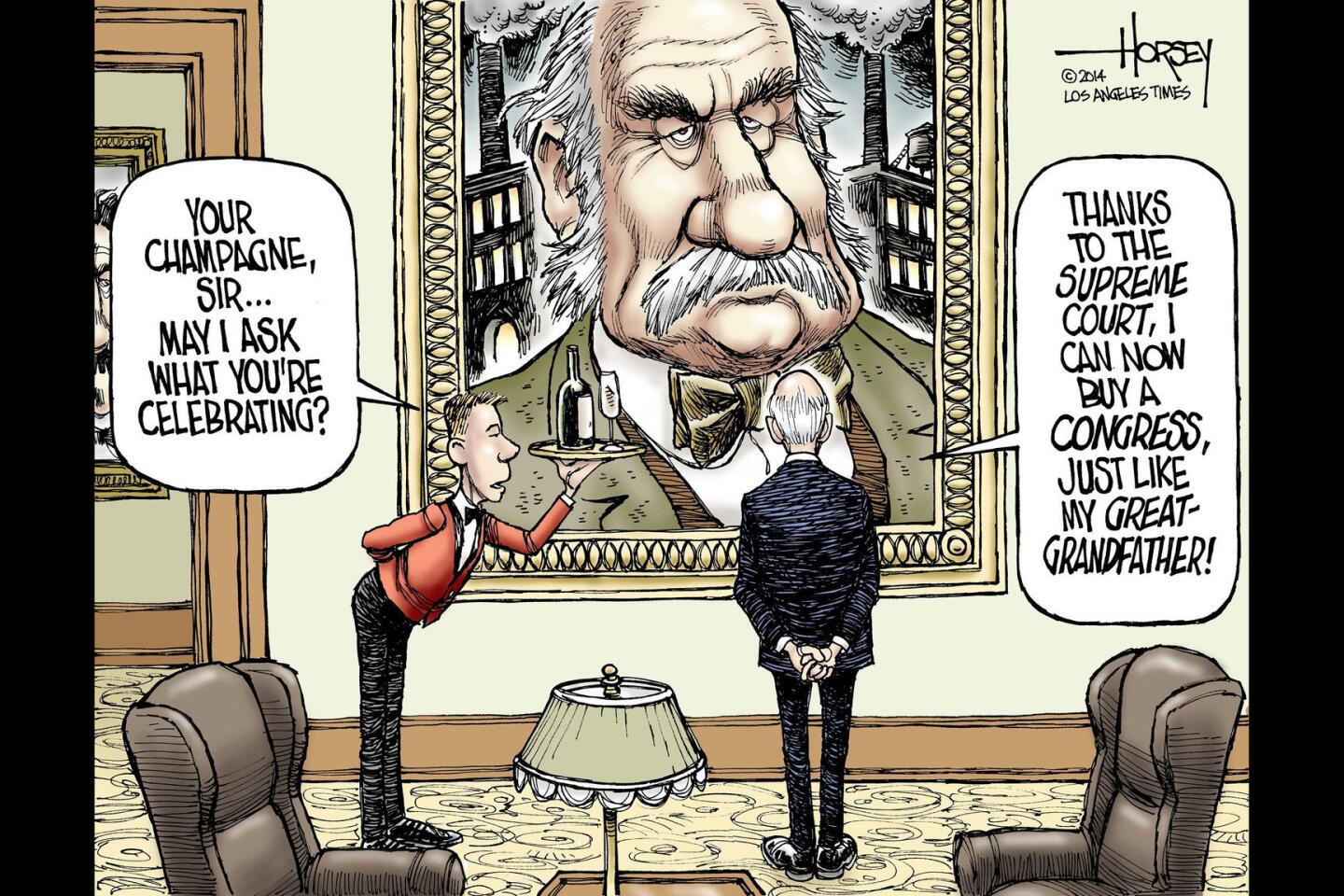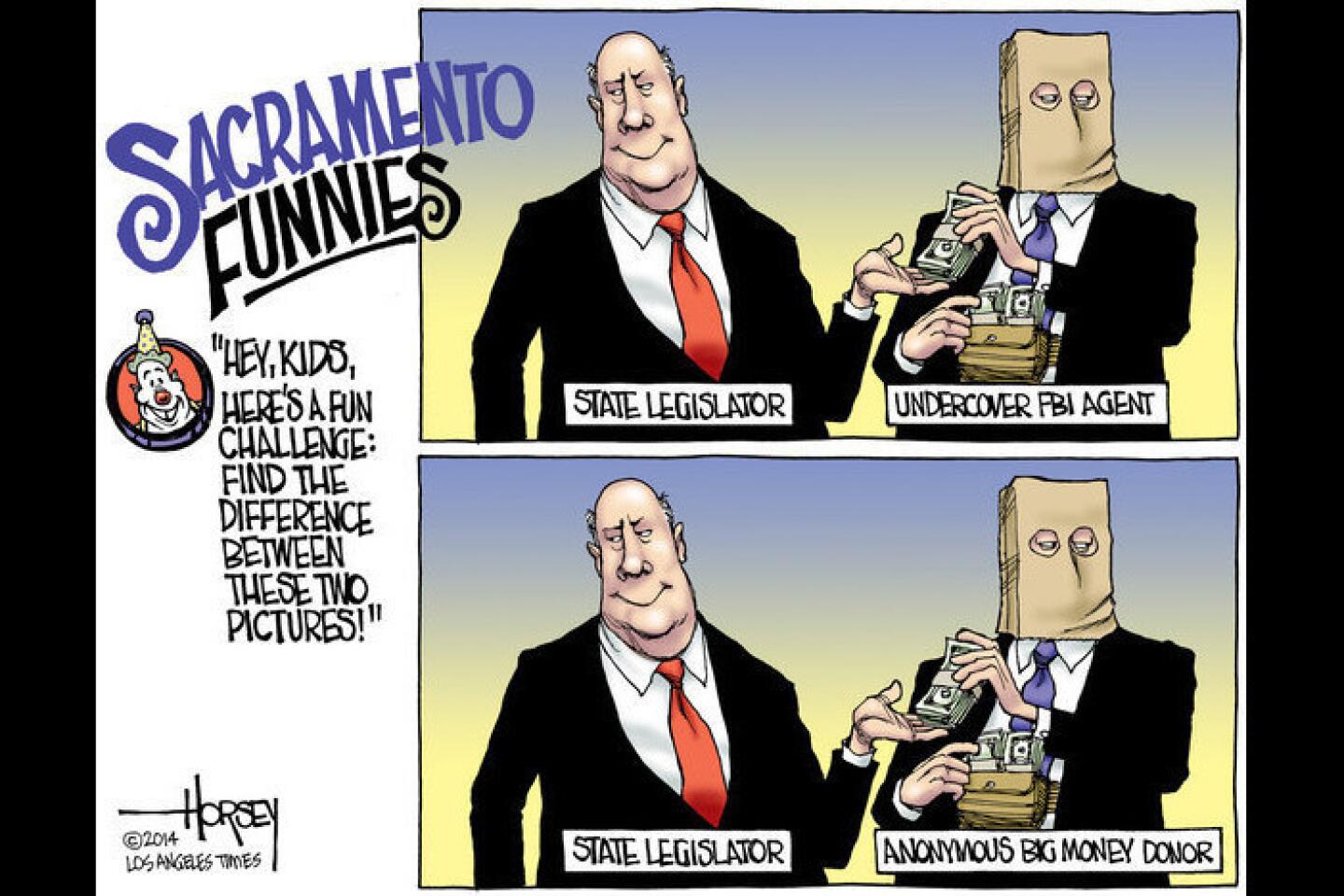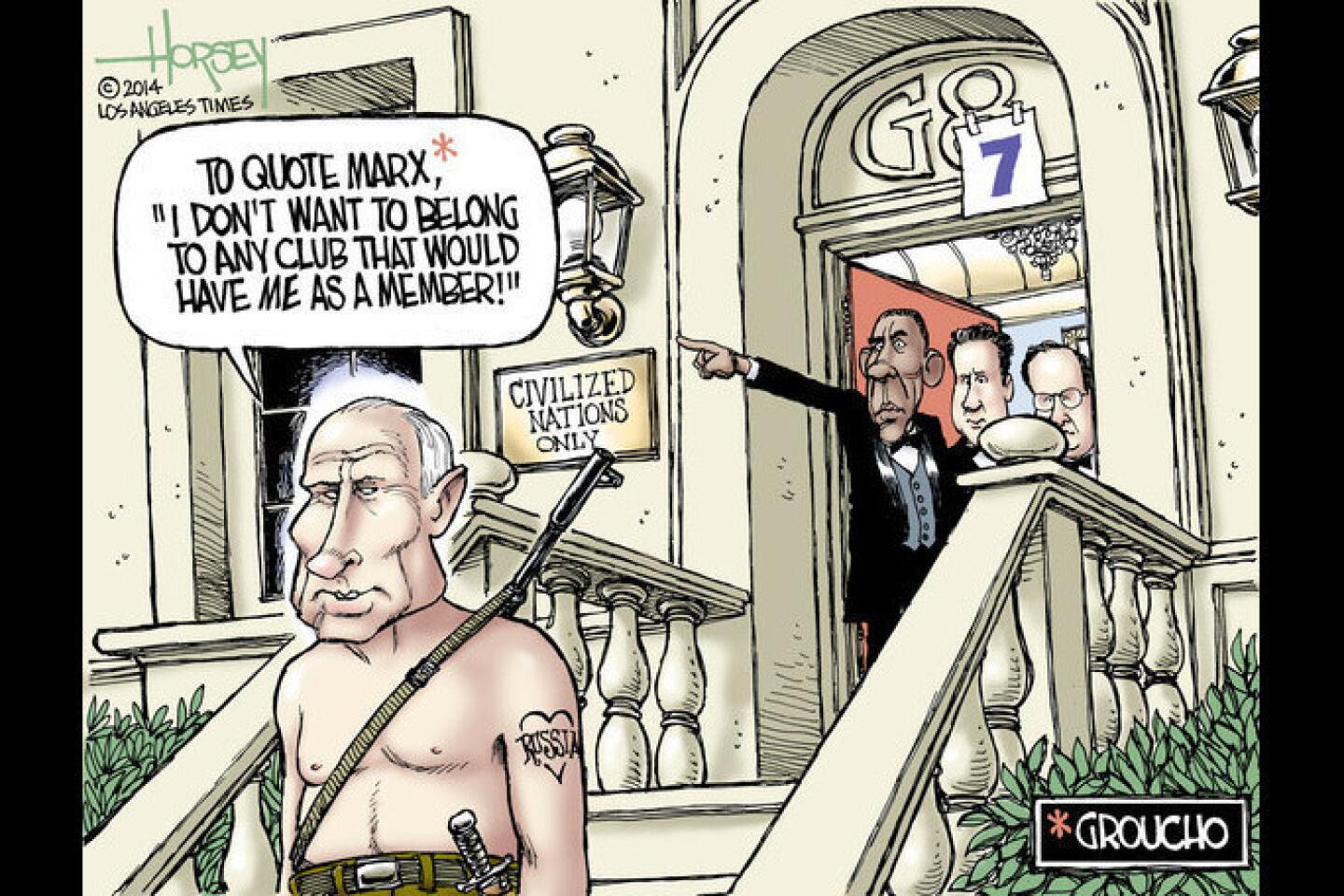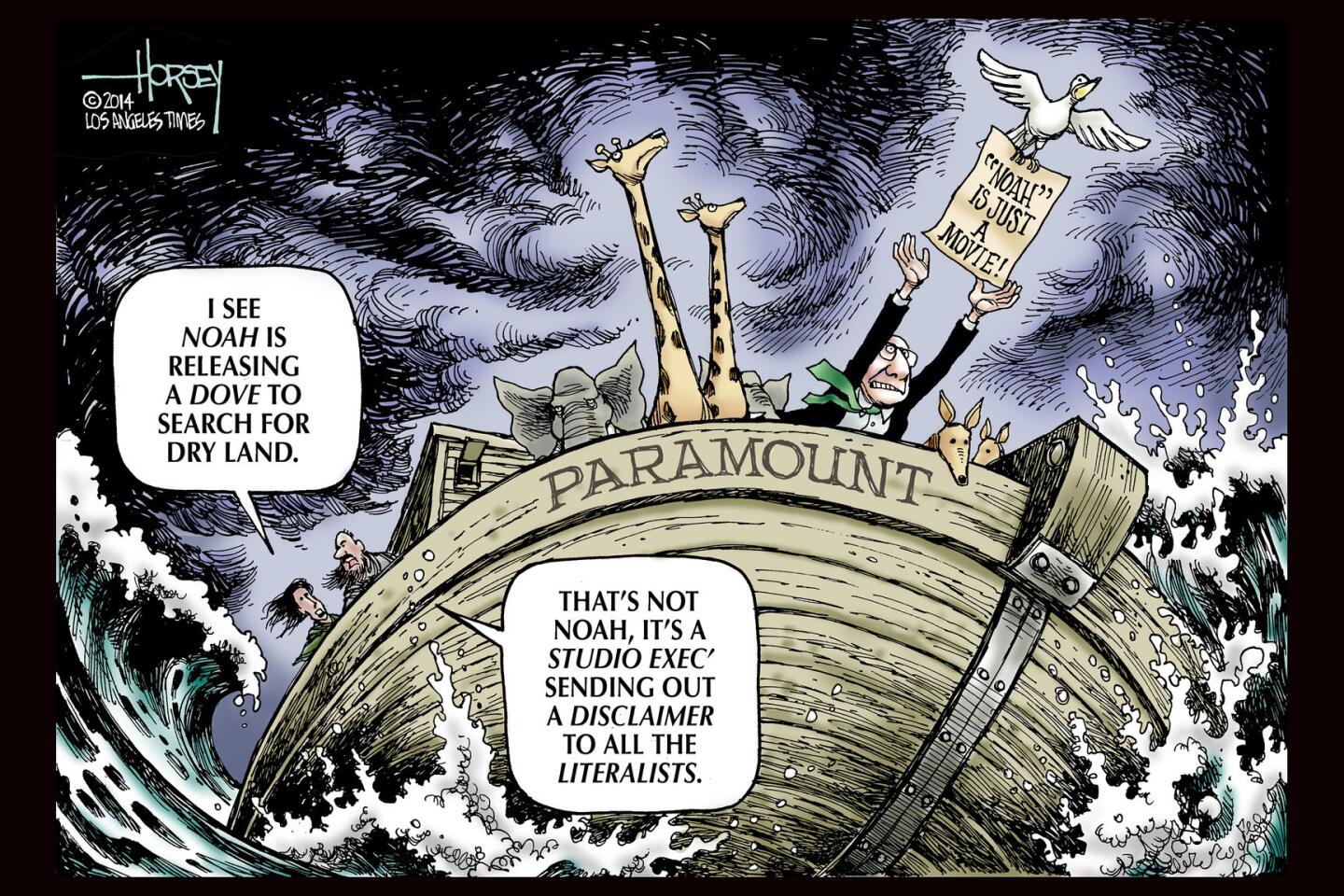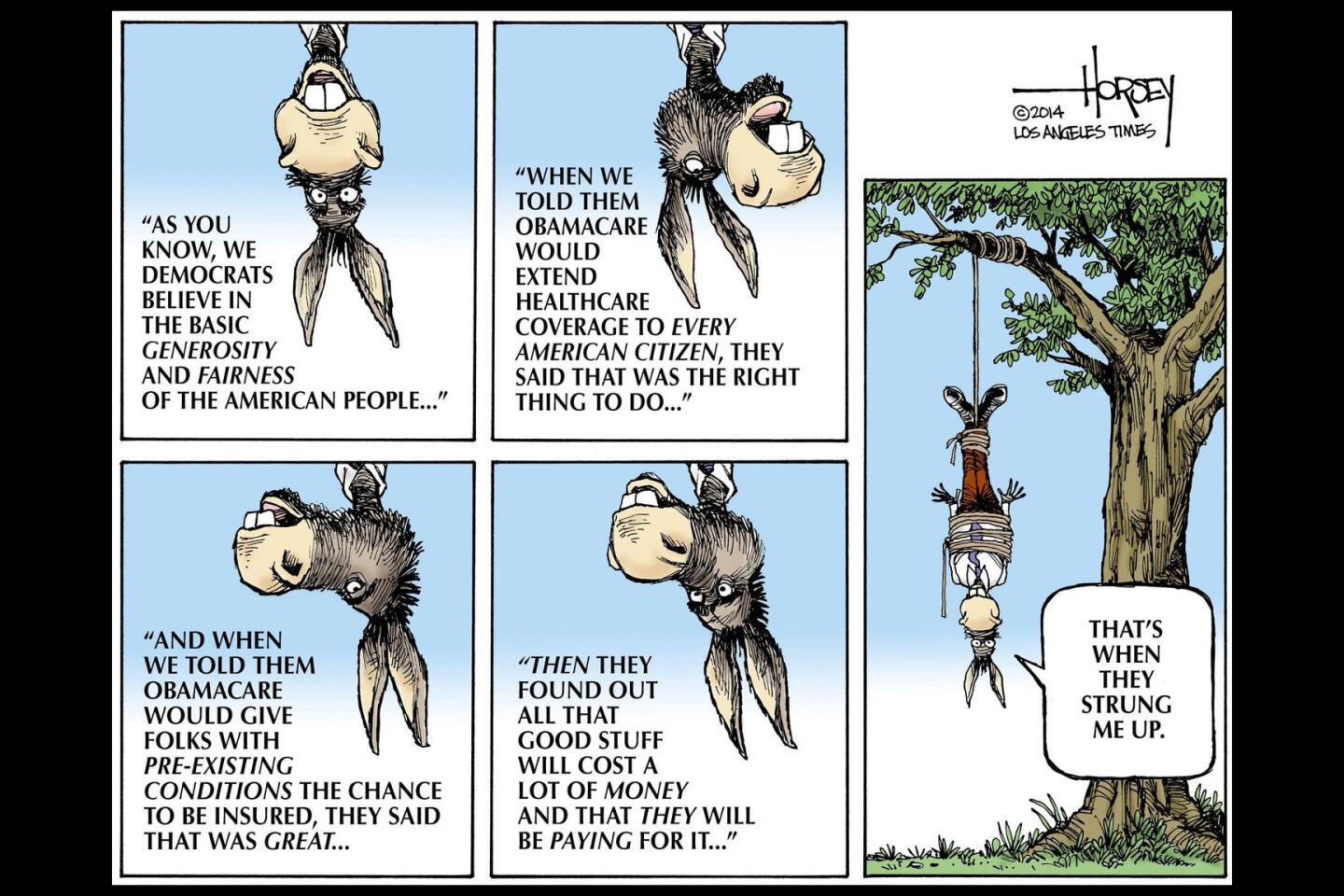In the spin room with Eric Garcetti and Trump’s flying monkeys
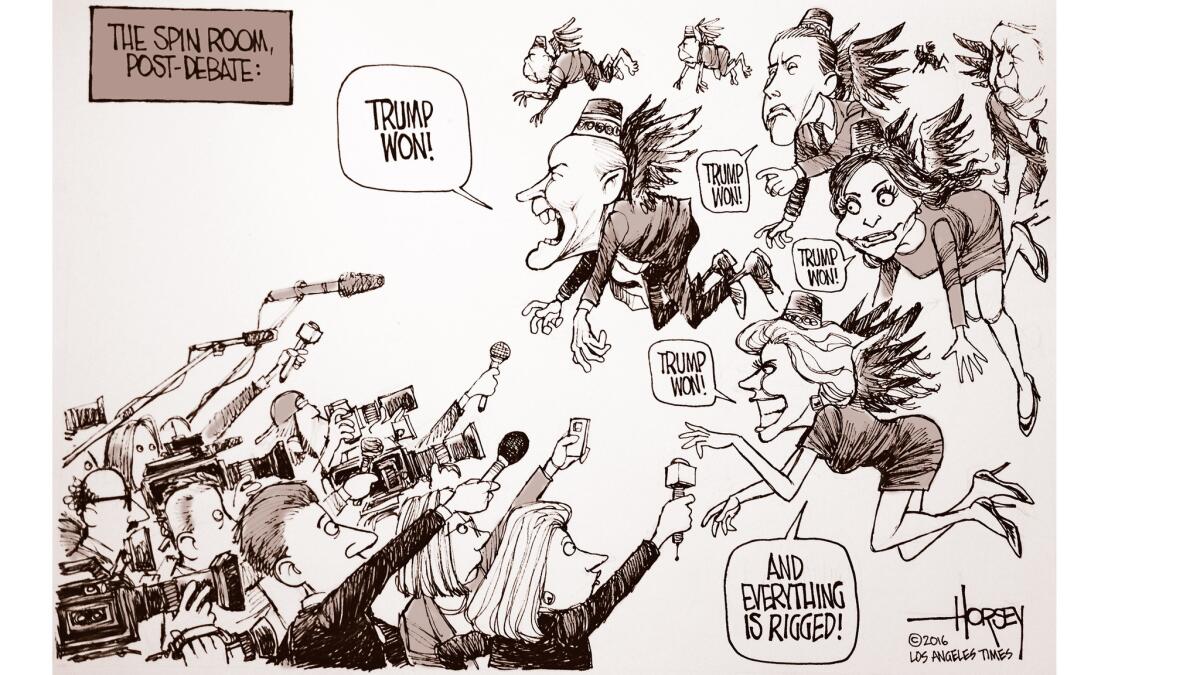
- Share via
Reporting from Las Vegas — Wednesday night, Donald Trump’s surrogates descended on the post-debate spin room like a horde of flying monkeys, declaring victory for their candidate and rattling off talking points amid a crush of cameras and microphones.
Trump campaign manager Kellyanne Conway was most sought-after, but there were plenty of other apologists for the Republican presidential nominee, including former New York Mayor Rudolph W. Giuliani, Alabama Sen. Jeff Sessions, Dr. Ben Carson and, in a cameo role, former Alaska governor and political celebrity Sarah Palin. Many of the large troop of females in tight dresses and fake eyelashes that Trump has drafted to speak for him were there, too, most notably Katrina Pierson, the rare brunette among many blondes who is famous for her uniquely odd arguments for Trump’s most outrageous assertions.
This time around, Pierson was defending her boss’ most notorious statement of the debate, his refusal to say if he would accept the verdict of the American people if he should lose the election. Pierson gamely tried to claim that Trump simply wanted to wait until all the votes were counted when it seemed pretty clear to most of the world — including many appalled Republicans — that he was threatening to recklessly cast doubt on the legitimacy of the next president and subvert American democracy.
Of course, no one would expect anything different from Pierson or expect any of the other surrogates, including those for Hillary Clinton (who, by the way, were outnumbered at least 3 to 1 by the Trump crew) to be purveyors of unscripted candor. And that’s why I find spin rooms such a laughable exercise. No one is going to say anything new and surprising. It is a dance where everyone knows the steps. The surrogates say utterly predictable things for a horde of reporters who just need some sound to fill a few seconds of TV and radio time or a quote to plug into a deadline story. It’s a symbiotic relationship, but not necessarily a healthy one.
I almost never dip in to talk with one of these spokespeople. I generally can’t think of a question for which I do not already know what their answer will be. Is there any doubt what Donald Trump Jr. was going to say when asked who won the debate? Does anyone think Clinton’s prime spinmeister for the evening, the Rev. Jesse Jackson, would judge Trump the victor?
I did run into one person I wanted to chat with, Los Angeles Mayor Eric Garcetti. Watching the debate in the press room with a few hundred other journalists, my impression was that this third faceoff between Trump and Clinton was a bit more substantial and a shade less churlish than their first two encounters. Garcetti was surprised by my assessment. He had been inside the debate hall and found it to be a particularly nasty confrontation. The TV image apparently did not capture the palpable antagonism between the candidates that Garcetti witnessed.
When the mayor said he had hoped to hear Trump flesh out his policies, it was my turn to be surprised. In a year and a half of campaigning, Trump has almost never bothered to go beyond boasts and random notions to delineate a serious plan for anything. Why would he start now?
Like the rest of the sane world, Garcetti was shocked by Trump’s refusal to say he would follow in the path of every other man who has lost a presidential election and ratify the result. But he was hopeful that, if and when Trump is defeated, the millions of people who are buying into his dark, dangerous musings about a stolen election would come around to acceptance. “I trust the American people to return to a place where we can work together,” Garcetti said.
It is a hopeful thought and I don’t think the mayor meant it as spin. Still, I am far from convinced we will recover from this campaign quite so easily.
Follow me at @davidhorsey on Twitter
More to Read
A cure for the common opinion
Get thought-provoking perspectives with our weekly newsletter.
You may occasionally receive promotional content from the Los Angeles Times.
